Munafiqeen: How to identify and deal with hypocrisy
Page 17
Why previous prophets were called ‘Muslims’ in the Holy Quran: Hazrat Musleh-e-Maud’s address at a reception in Karachi, 1953

Munafiqeen: How to identify and deal with hypocrisy
Page 17
Why previous prophets were called ‘Muslims’ in the Holy Quran: Hazrat Musleh-e-Maud’s address at a reception in Karachi, 1953
Hadith-e-Rasul – Sayings of the Holy Prophet Muhammadsa
On 20 November
The mulaqat commenced
Hazrat Khalifatul Masih Vaa then turned to Kashif Virk Sahib, Sadr Majlis Khuddamul-Ahmadiyya Sweden, and asked him what the programme was. Sadr Sahib replied that there were some atfal who had questions they wished to ask Huzooraa
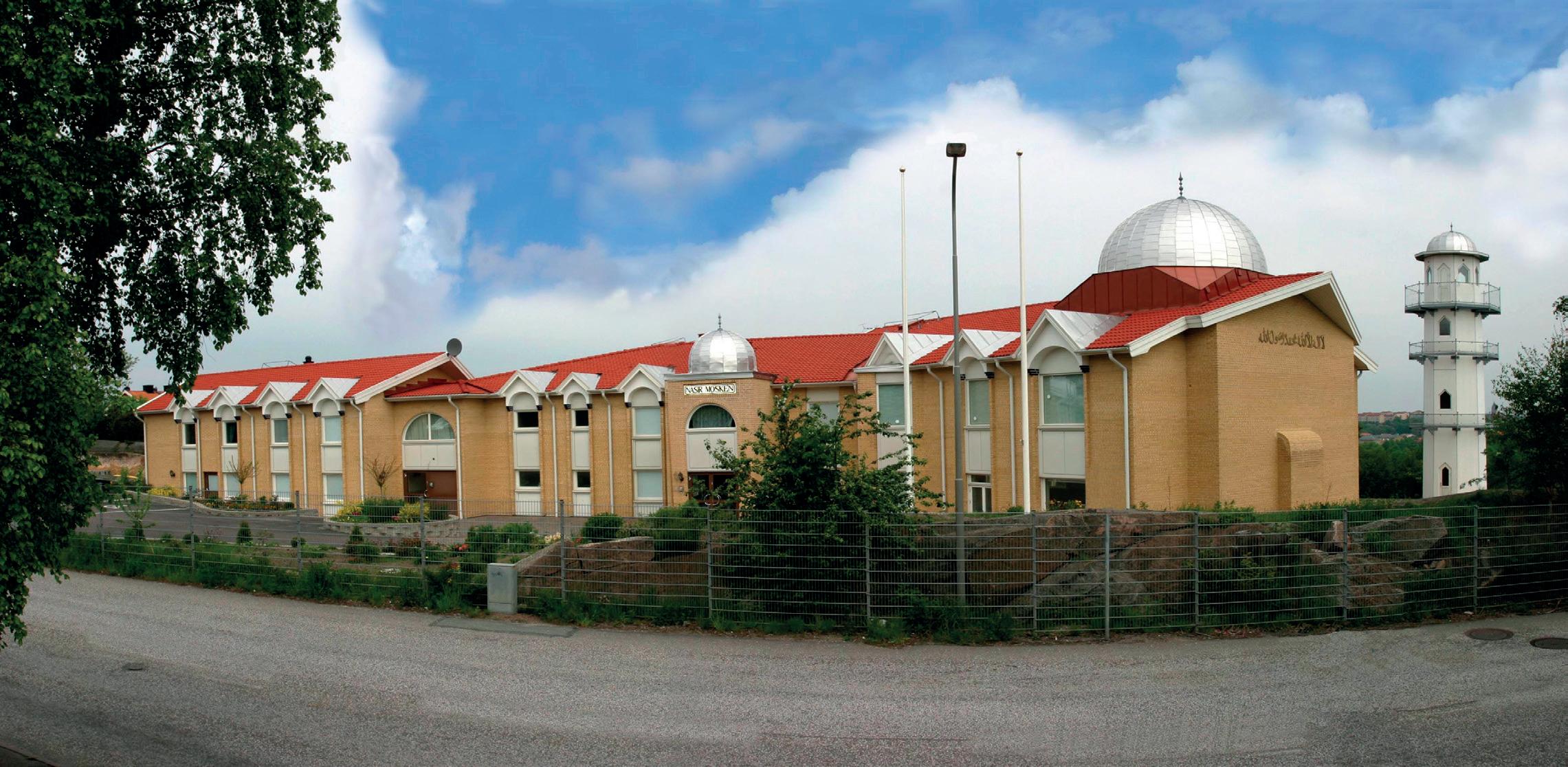
He asked, while Allah the Exalted sent thousands of prophets, were there also numerous Satans?
Hazrat Khalifatul Masih Vaa smiled and said, Satan had also put together a big team for himself. Allah had sent prophets to every nation, but wherever prophets were sent, Satan would also go there to do his work.
Hazrat Abdullahra bin Amr relates that Allah’s Messengersa used to recite the following prayer: “O Allah, I seek Your shelter from the termination of Your bounties, withdrawal of Your protection, Your sudden chastisement and everything that incurs Your wrath.”
(Sahih Muslim, Kitab al-Riqaq, Hadith 2739)
Sharim Afzal presented a hadith of the Holy Prophet
Then,
and its Urdu
The first question was asked by Amaan Salaam. He said the prophets’ duty was to guide people while Satan misled people.
Elaborating on the nature of Satan, Huzooraa said, Satan was not a physical entity like prophets, who were human beings. Thoughts that arose in a person’s
On this occasion, I leave aside the discussion of countless gods because this concept is a clearly absurd and senseless belief. For if there were innumerable gods, as some believe, this would create havoc in the world. However, I would like to mention the Trinity. I have demonstrated from the phenomena observed in nature that God is One. Now, if God were three, as the Christians assert, God forbid, water, the flames of fire, and the bodies in heaven and earth ought to have been triangular, so that the universe would bear witness to the Trinity. The light of the heart can never attest to the concept of the
<< Continued from previous page
heart could also be Satanic. When a prophet admonished people to do good deeds, the angels also urged the pious people to follow the prophet, while Satan whispered to them, not to obey the prophet’s exhortation. Giving the example of Hazrat Adamas and how Satan refused to obey him, Huzooraa said, “When Allah the Exalted created Hazrat Adamas, He ordered the angels to prostrate, which meant to obey and convey his exhortations to people.” At that time, Satan refused to submit to Adamas and rebelled against conveying his exhortations to people. Huzooraa further said, “Upon this, Allah said, I will punish all those who believe in you and follow you.’ Satan said, ‘Very well, but give me respite until the Day of Resurrection so that I may mislead people.’ Allah said, ‘Fine, I grant you permission to try to misguide them.’ Its conclusion is that whenever prophets will appear and will preach and teach good things to people, Satan will always teach them evil things at the same time.” Huzooraa said, Allah would then punish Satan and those who obeyed him. Hence, it was mentioned in the Holy Quran that when such individuals or nations would die and be presented before God Almighty, at that time, Satan would say that Allah had fulfilled His promise, but my [Satan’s] promise was based on a lie in order to mislead people. Hence, they would have to endure punishment for rejecting God’s message and obeying him instead.
Huzooraa further stated, “The Holy Prophetsa states that, ‘Satan runs through every human being like blood does […] but my Satan has become Muslim,’ meaning, I have subdued it and it cannot harm me. Thus, there is a Satan in every human being. When one is assailed with evil thoughts, they are in fact from Satan. Good thoughts or urges stem from angels. Thus, there are not one but hundreds of thousands or millions of Satans. There are as many Satans as there are humans.”
The next question was asked by Salman Hafeez, who wanted to know how he could see God.
Huzooraa replied that Allah had taught us, “If you want to see me, look at My power. You will see what a beautiful world I have created.” Then, addressing the questioner. Huzooraa said, “You live in Sweden, don’t you? Norway is your neighbouring country. The northern lights that appear there and the snow that falls, are all manifestations of God’s powers. Sweden is a beautiful country. God made it beautiful; there are also high mountains, there are trees, there are valleys below and there are plains too. All these things manifest God’s powers. If you want to see Allah the Exalted, then recognise Him by observing the manifestation of His powers. Moreover, Allah the Exalted does not have a physical body, to be seen. When you pray, if you pray to Allah with great fervour and Allah accepts your supplication, then that amounts to His showing Himself. Allah’s manifesting His powers and accepting your supplications is His revealing Himself.”
Nurul Haq asked whether one could offer nawafil after having offered witr after the Isha prayer.
Huzooraa replied, “Nawafil should not be performed after the witr of Isha prayer. You should first go to sleep, get up after sleeping and perform the nawafil of tahajjud. One should sleep for a while, then get up after
midnight and perform nawafil. Otherwise, whatever nawafil you wish to offer, offer them before witr
“This is what we have been taught and this is the sunnah. We have to follow whatever practical example the Holy Prophetsa or the Promised Messiahas have shown us. That [what I have described] was their example.”
Affan Ahmad asked why we offered salat facing the Kaaba if God was everywhere.
Huzooraa said, Allah was indeed everywhere, but in order to concentrate and focus attention, there had to be one designated place. Thus, Allah the Exalted created this symbol, that is the Kaaba. Highlighting the significance of the Kaaba, Huzooraa said it was the first House of Allah, which was later rebuilt or expanded by various prophets. Muslims used to pray facing Bayt al-Maqdis but this was later changed to the Kaaba in Mecca.
Huzooraa added, “Allah has said that the Muslim ummah should become one united ummah. In this age, the Promised Messiahas was sent by Allah to fulfil this objective and it was also revealed to him that, ‘Gather together all the Muslims who are on the earth on one religion.’ [Tadhkirah, p. 793] And this is also a symbol. Allah made a symbol and told you to turn toward it so that it would become known that Muslims are one. It is unfortunate that the world’s Muslims choose the Kaaba as the qibla, pray facing it, but still fight among themselves, whereas, Allah the Exalted made this symbol so that you should pray facing it and live as one united ummah, instead of dividing into sects. However, since this was also destined to happen, Allah the Exalted knew that this is the nature of man and man acts like this, therefore, Allah Almighty also informed the Holy Prophetsa that in the Latter Days He shall send the Promised Messiah and Mahdi who shall unite his ummah. And the purpose of the coming of the Promised Messiahas was to gather all the Muslims and all the other people of the world and make one united ummah so that they all come together and pray while facing the Kaaba and express that we are all one and we all worship the One God. And the symbol of that Oneness of God that is in the world at this time, towards which we have to pray, is the Kaaba, so that our unity can be maintained.”
Muhibb-ur-Rahman was next to ask a question. He asked why there were various postures and movements in salat, the Islamic prayer.
Huzooraa replied, “Allah the Exalted has taught Muslims the perfect way to worship; First, you stand up and fold your hands like this […] Then another state arises in the heart to ask Him, then you move like this and bow down, thus the state of ruku‘ comes, then you stand up anxiously and say, ‘O Allah, listen to my supplication’, then, just as a man is sometimes very desperate and very anxious, he stands up and asks someone [in the same way you] then stand up and say sami‘Allahu li man hamidah [Allah listens to the one, who praises Him]. Then you are overcome by a state of anxiety again and you suddenly go into sajdah and pray to Allah Almighty again, crying fervently. Then you sit up and then you go into sajdah, then you stand up once again and pray, then you sit down for at-tahiyyat and offer supplications; and then you say the salaam. Allah the Exalted has taught us the
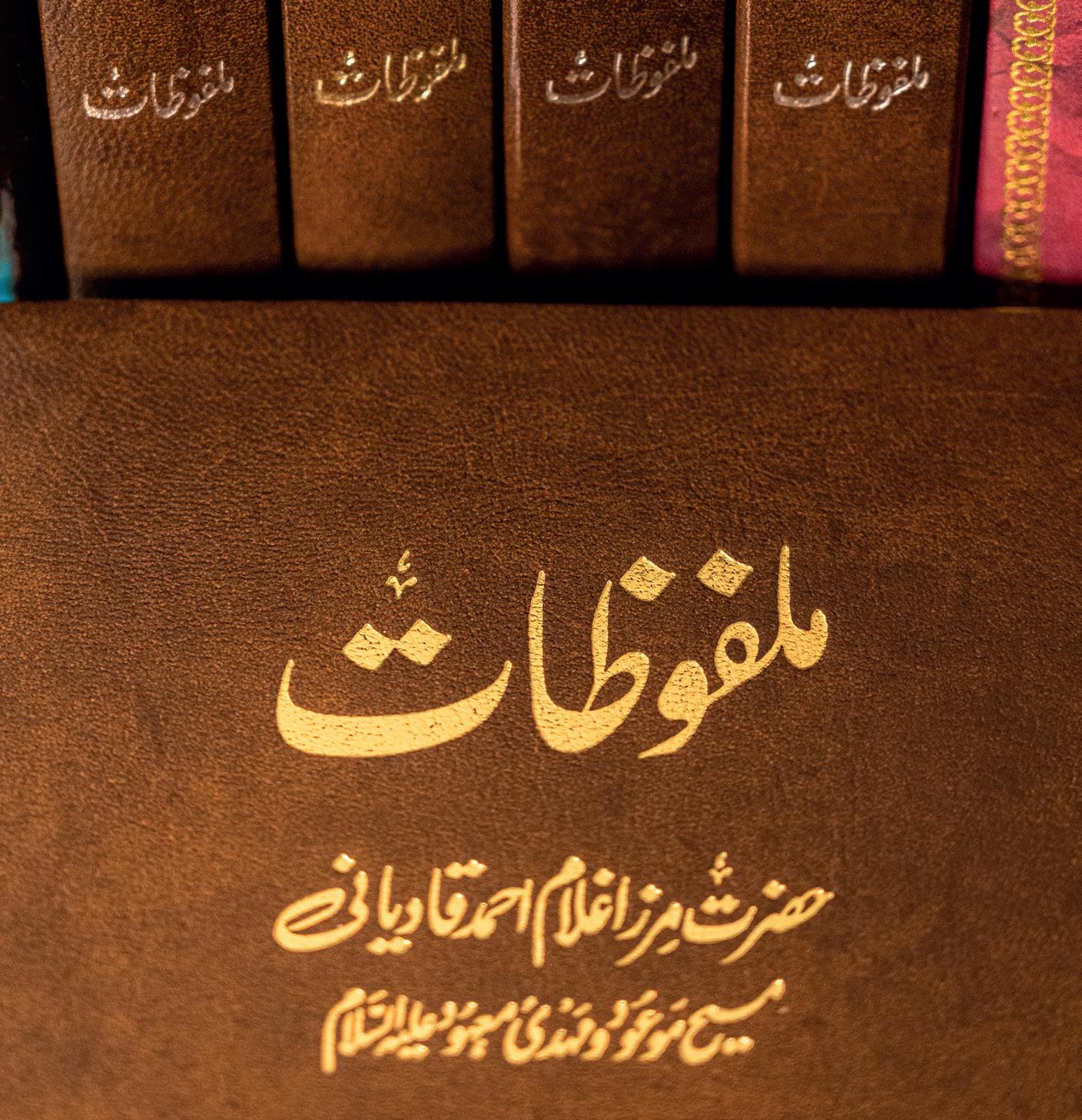
<< Continued from previous page
Trinity. When Christian priests are asked whether people would be judged by their belief in Trinity or Unity, in places where the Gospels have not reached, they have openly conceded that such people would be judged on their belief in God’s Unity. In fact, Dr Pfander has put this admission to writing in his book. Now,
in the presence of this clear testimony, I cannot understand why anyone would advocate belief in the doctrine of the Trinity. Not to mention that these three gods are strange indeed, for each of them has different duties. In other words, each God in itself is deficient and incomplete, and each god completes the other.
(Hazrat Mirza Ghulam Ahmadas Malfuzat, Vol. 2, p. 47)
different postures for salat because they are different expressions of a person’s humility.”
Giving the example of how small children, behaved and acted with persistence before their parents if they wanted something from them, Huzooraa said, “When you want to persistently ask for something from your parents, sometimes you cry, at other times you move your hands and legs, sometimes you sit down on the floor, then you stand up. Do small children not show their persistence like this?” Huzooraa further said, “It is human nature to have the habit of persuading someone of one’s point of view by adopting various postures or methods. Allah the Exalted has also taught Muslims different postures for prayer, saying, ‘When you come to Me, adopt different postures, adopt different expressions, and then also supplicate to Me,’ for which Allah the Exalted has also taught different words of prayer and then said to cry and supplicate fervently. Consequently, Allah accepts the supplications. So, our mode of worship is quite perfect, not just a sit-back-and-relax method. It is natural. It is the natural way to ask for anything.”
Faraz Ahmad asked whether the Langar Khana that was founded by the Promised Messiahas and all the Langar Khanas around the world had similar kinds of significance and blessings.
Huzooraa replied, “When the Promised Messiahas established the Langar Khana [i.e. the free public kitchen for the hospitality
of guests], he said that that was also one of the objectives of his advent, and he said that one of the many duties entrusted to him was the Langar Khana Langar Khana was established for those who come for tabligh, those who are needy and those who come to learn religion. The Langar Khana that was established during the time of the Promised Messiahas had its own great blessings. After all, that was the Langar Khana of a prophet’s time. However, it continues till today. For example there is a Langar Khana operating here in London or in Islamabad, where the Khalifa-e-Waqt resides. This Langar Khana is also operating because people come here for religious purposes or to learn religion. Some Langar Khanas that are operating in the world, do not operate permanently but they operate on the days of gatherings such as jalsas, or ijtemas or other Jamaat functions. They also operate for a religious purpose and that religious purpose is that people come to learn that Islamic teaching which Allah sent the Promised Messiahas to propagate in the world again in its original correct way. And those who come to learn also need food etc. They need to be provided with food. So now, whatever Langar Khanas will be established for religious purposes, for spreading the teachings of the Faith and for feeding those who come to learn religion, they will be fulfilling the objectives of the Langar Khana that was founded by the Promised Messiahas. Hence, all of them will become one [institution].”
Khaqan Yusuf asked, what methods of preaching [tabligh] he should use in Sweden to convert people to Ahmadiyyat.
Huzooraa smiled and asked Khaqan how old he was, to which he said that he was ten years old. Huzooraa appreciated his high noble aims and said, “Firstly, you have now turned ten years old, so the five daily prayers have become obligatory on you. You should perform the five daily prayers regularly. In your prayers, pray to Allah Almighty to grant you the opportunity to preach and bless your tabligh efforts.
“Secondly, acquire religious knowledge: You should know why you are a Muslim, why you believe in the Holy Prophetsa, why you believe in the Promised Messiahas, why you have pledged allegiance to the Khalifa, why you are an Ahmadi, and what is Ahmadiyyat. You should know all these things well. Once you know why you are an Ahmadi, why you are a Muslim, and once you know that the teaching which the Holy Prophetsa brought was the perfect teaching as is mentioned in the Holy Quran, then you will understand that you have to act upon it.
“Then, you will act upon that [teaching]. When you act upon it, your worship and your prayers will become better and your morals will improve. People will be able to recognise a difference between you and the rest of the students. The other students will see that this boy is smart in his studies, he worships Allah Almighty, prays on time whenever it is time for prayer, has good morals, does not quarrel with anyone, does not say a bad word, does not use foul language, then [upon seeing all this] your peers and even those who are a few years older than you, will start paying attention to you. [...] Then they will ask you who you are. Then you can tell them who you are and what kind of a Muslim you are; that is, you are an Ahmadi Muslim. [You will inform them] why you are an Ahmadi Muslim and who Ahmadi Muslims are, and that you believe Allah the Exalted had sent the Promised Messiahas in this age to teach and propagate the true teachings of Islam. This is how you will be able to do tabligh. Our duty is to convey the message.
“This will then have a positive effect on them. Then those among them who will be pious people, good-natured people, will listen to your preaching and accept Ahmadiyyat, if Allah so wills for them. Those who are children, will develop positive sentiments in their hearts and if they remain attached to you, they will grow up, contemplate for themselves and then become Ahmadis. When you grow up and preach to the grown-ups, then those who are good-natured among them [will accept.] Allah says that your duty is just to preach, so you convey the message. Other than that, it is His job to guide someone. So, for whoever Allah wishes, those who have any goodness in them, who want to be freed from the clutches of Satan, then Allah will guide them and they will become Ahmadis.
“Our duty is to be good ourselves, observe prayers properly, uphold good moral standards, say good things, and if you are in school, be good students, then, God willing, people will pay attention to us and once they do, the preaching will be done, and when the preaching is done, Allah will also bring forth positive results.”
Nauman Zafar asked if Ahmadi children were permitted to attend Halloween, Easter
or Christmas parties held at school. With regard to school parties, Huzooraa said Ahmadi children should not go to any event where there was any kind of shirk –associating partners with Allah. Huzooraa said Ahmadi children should also not recite hymns or poems that referred to Jesusas as being the son of God. If the school had made Christmas parties etc., compulsory then Ahmadi children could attend but sit there without actively participating in the shirk. Huzooraa said, “We believe in One God. Apart from this, if it is not compulsory to attend the parties, then it is better not to go. You can remain at home and do more productive things.”
Concerning Ahmadi children giving presents to Christian friends during Easter or Christmas, Huzooraa said:
“As far as giving presents to your friends during Christmas or Easter, you can give them gifts to maintain a spirit of friendship with them and you show good morals. There is no harm in giving presents, but you are not to sing hymns that have shirk in them. Do not do anything that is against Allah or that holds others to the same level as Allah.”
If such parties were mandatory, then Ahmadi children could sit and observe what was going on; however, “Do not be influenced by them, do not be impressed”, Huzooraa emphasised.
Speaking about Halloween, Huzooraa said Ahmadi children should not go doorto-door during Halloween asking people for sweets, etc. However, if other children came knocking at their houses, then there was no harm in the Ahmadis giving them chocolates, sweets, etc.
Hizqeel Ahmad asked how one could become a bodyguard for Huzooraa. In reply, Huzooraa said it was better for Ahmadi children to gain a good education and serve humanity and the world, by choosing productive professions like engineering, medicine and teaching, etc. Huzooraa said to Hizqeel that for now, he should focus on his studies and when he completed secondary school, he could decide what he wanted to be. If Hizqeel was passionate about being a security guard or was not good at studying, then if he wanted to be a security guard, taking professional training was important.
Huzooraa emphasised that “Ahmadi children should be good at studies” and “become people who served humanity”.
Safwan Mahmud asked how Ahmadi children who were not part of the Waqf-eNau scheme could serve the Jamaat. Hazrat Khalifatul Masih Vaa said:
“The Waqf-e-Nau scheme was started in 1987, did people not serve the Jamaat prior to it? I am not a waqif-e-nau but Allah is giving me the opportunity, right? There are lots of people who are not waqf-e-nau and are serving the Jamaat – people did waqf before 1987 as well. […]
“You can go to Jamia and become a murabbi; even if you are not waqif-e-nau you can still go to Jamia. By becoming a doctor, you can serve the Jamaat’s hospitals, you can serve by becoming a lawyer or another profession like being a teacher. And if you are working in the world [without being a life-devotee], then you can serve by spreading the message of the Jamaat, possessing good morals and telling people that you are an Ahmadi and sacrificing a few days a week for the Jamaat. You can take part in other activities of the Jamaat too.
There is a lot to do.
“All the waqf-e-nau are not working for the Jamaat full-time. They are working in their respective professions, as are other Ahmadi boys. You can do this too. If waqifeen-e-nau can become murabbis, so can you, if they can serve the Jamaat by becoming doctors, so can you, if they serve by becoming engineers, so can you, if they serve by becoming lawyers, then so can you, if they are serve by becoming teachers, so can you, and if they can give their time to the Jamaat on weekends or at other times, then so can you.
“There is no difference. The only difference is that in Waqf-e-Nau there is a bond – they say, ‘We will most definitely do waqf’. However, if someone does not fulfil that bond, then there is no difference between them and a normal Ahmadi boy.”
“You can do everything, even if you are not a waqf-e-nau”, Huzooraa stressed.
Zain-ul-Haq asked if one could give sadaqah on behalf of a deceased person. Huzooraa said it was permissible to give chanda and sadaqah as well. Further, Huzooraa said charities or trusts could be formed on behalf of the deceased too from which the needy would be helped.
Abeer Ahmad – a young tifl – asked Huzooraa how one could develop a friendship with Allah at a young age. Hazrat Amirul Momineenaa said:
“Whatever you should do at an older age, you should do at a younger age too. Offer salat, pray to Allah that ‘O, Allah, make me Your friend’, follow Allah’s commandments, do good deeds and avoid bad ones, then Allah befriends such a person.” Huzooraa advised Abeer to pray in salat that, “O, Allah, make me Your friend’.
Faran Ahmad asked if Ahmadis would be able to shake Huzoor’s hand again. With a smile, Huzooraa said that during a virtual meeting it was not possible to shake hands with the atfal however, in person, when Covid-19 ended handshakes would be possible again, Huzooraa said.
Adeen Afan Zafar, aged seven, asked at what age Ahmadi children could have a phone. Huzooraa said it was not appropriate to possess a phone at such a young age. If children needed to make a call from school to their parents, they could ask the school’s administration. Huzooraa said if Ahmadi children wanted to play good games on a phone or tablet, they could do so if their parents allowed and under parental supervision so they don’t go on inappropriate sites or click on malicious links.
“You must only go on [these devices] when your parents are present and under their supervision so they know what you are viewing”, Huzooraa said. Further, Huzooraa said children should not view screens for more than half an hour or up to an hour because it could strain their eyes and also lead to addiction.
Huzooraa said to Adeen that when he got older, his parents would get him a phone themselves.
Safwan Ahmad asked how he could know if he was becoming a good tifl. Hazrat Khalifatul Masihaa said if he was offering his prayers, praying to Allah to make him a better person, focusing and doing well in his studies, obeying and being good to his parents, avoiding quarrels and fights with other children and was nice and moral to
them instead, then he was a good tifl.
Hisar Ahmad Zafar said it was mandatory to believe in all prophets, however, non-Ahmadi Muslims rejected the Promised Messiahas. Hisar asked if Allah would forgive them. Huzooraa said:
“You see, to forgive or not is solely Allah’s decision. Allah the Almighty has said to believe in all prophets and, in the Holy Quran, has instructed Muslims to believe in all prophets. And the Holy Prophetsa prophesied too that in the latter days, the Messiah and Mahdi will arrive. […] Whoever was to come was to be a prophet, other Muslims also believe that when Jesus physically returns, he will be a prophet and we too believe that the Messiah was to be a prophet when he was to appear – therefore we have accepted him, but they have not.
“The Promised Messiahas has said the issue of not accepting will be dealt with by Allah in the Hereafter; who He will punish, who He will forgive, which good deed He will accept or reject, who He will punish more and who He will punish less.
“Allah punishes in this world and in the Hereafter those who create disorder (fasad) and are cruel (zalim). The destruction of nations does not merely occur because they reject a prophet, it happens because they then oppose and persecute him too. Ultimately, forgiveness and punishment was in the hands of God, Huzooraa said.
Huzooraa said it was all well and good that we accepted the Promised Messiahas, however, without good deeds and action, this mere acceptance was not enough. In fact, we had more responsibility to follow the commandments of Allah and gain His closeness.
Exhorting Ahmadi Muslims, Huzooraa said:
“We should worry about ourselves too – instead of worrying about others –because if we have accepted [the Promised Messiahas] we should also undergo righteous and positive moral transformations. If, after accepting, we fail to develop positive moral transformations within ourselves and do good deeds and our standards of prayer and worship have not improved, then we should worry about ourselves rather than others.”
The final question was by Faris Khaqan who asked why Muslims offered prayers when there was an eclipse. Huzooraa said it was because Allah had created a significant change in the everyday occurrences of the solar system and therefore we should fear Him. Huzooraa said it was also an opportunity to pray that Allah protected us from any negative effects of an eclipse and so that we can take advantage of any goodness.
Huzooraa said, “Whenever there is a significant change in the everyday routine of nature, Allah’s fear should be instilled in our hearts. The Holy Prophetsa would even seek forgiveness from Allah and pray when it rained and dark clouds gathered or during lightning and thunder; that Allah may protect them from their negative effects, because nations were punished through storms and clouds as well. For this reason, while fearing Allah, we should always pray whenever there is a significant change in nature.”
Hazrat Amirul Momineenaa conveyed his salaam and the meeting then came to a successful end.
(Report prepared by Al Hakam)25 November 2016:
26 November 2004: During his
Friday Sermon on this day, Hazrat Khalifatul Masih Vaa mentioned Majeeda Shahnawaz Sahiba, daughter of Hazrat Nawab Muhammad Din Sahib, who passed away on 25 November. She had the opportunity to serve as Sadr Lajna Imaillah in Delhi, Karachi, and London. She was a musia of 1/3, and had provided educational grants to thousands of students around the world.
27 November 2009: During his Friday Sermon on this day, Hazrat Khalifatul Masih Vaa mentioned Rana Salim Ahmad Sahib of Sanghar, Pakistan – Naib Amir District and Nazim Ansarullah District – who was martyred on 26 November. He had the degree of MA B.Ed. and was running a school in Sanghar.
Huzooraa also mentioned Giani Abdul Latif Sahib, Darwesh of Qadian, who passed away at the

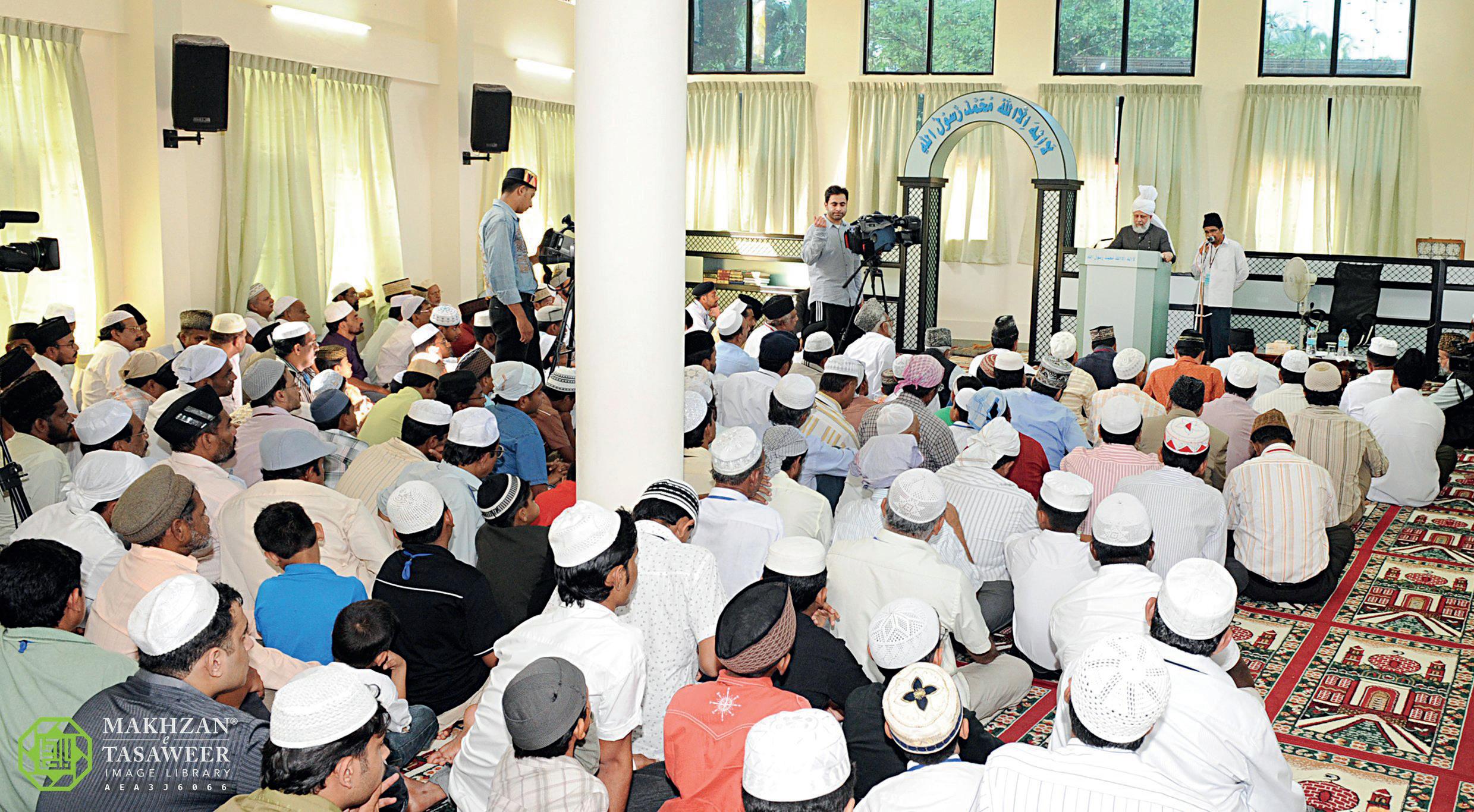

age of 82. He had passed the Giani exam of Gurmukhi, and was thus, known as Giani. Upon the call [tahrik] of Hazrat Musleh-e-Maudra, he got released from the army and was amongst the 313 Darweshan-eQadian. He had the opportunity to revise and proofread the Gurmukhi translation of the Holy Quran, and also served as manager of Badr newspaper.
27 November 2015: During his Friday Sermon on this day, Hazrat Khalifatul Masih Vaa spoke on his tour of Japan and spoke about the inauguration of the first Ahmadi mosque in Japan, the Baitul Ahad Mosque.
Huzooraa also mentioned that recently a chipboard factory in Jhelum, Pakistan, owned by Ahmadis, had been set on fire by the opponents, and they attempted to burn the Ahmadi owners alive, however, by the grace of Allah the Almighty, they failed their attempt. But there was a huge financial loss to the owners.




Huzooraa also mentioned that two Ahmadi mosques had also been attacked in Pakistan and spoke on the perseverance of Ahmadis.
28 November 2008: During his Friday Sermon on this day, delivered from Baitul Quddus Mosque in Kerala, India, Hazrat Khalifatul Masih Vaa narrated about the sincerity and loyalty of the local Ahmadis and called their attention towards the purpose of their creation, i.e. the worship of Allah the Almighty.

After Qadian, this was the first place in India, from where the live coverage of MTA was happening. The Friday Sermon was simultaneously translated into the Malayalam language as well.
29 November 2008: During his tour of Southern India, Hazrat Khalifatul Masih Vaa inaugurated the Umar Mosque in Ernakulam, a famous business city in the Kerala state.

30 November 2012: During his Friday Sermon on this day, Hazrat Khalifatul Masih Vaa mentioned Chaudhry Nusrat Mahmud Sahib, who was martyred on 27 November. He was visiting Pakistan from America to attend his daughter’s wedding. On 19 October, while returning from Baldia Town, Karachi, after the Friday Sermon, they were shot at and his sonin-law, Saad Farooq Sahib, was martyred on the spot. Nusrat Mahmud Sahib was injured and admitted to the hospital, and after remaining in the hospital for 38 days, before he passed away.
1 December 2008: During his tour of India, Hazrat Khalifatul Masih Vaa was interviewed by a correspondent of the Indian Express, a well-known newspaper in India. Huzooraa was also interviewed by the chief reporters of The Hindu, and a Malayalam newspaper, the Janam Bhumi
On 20 November 2022, Hazrat Khalifatul Masih Vaa graced Majlis Atfal-ul-Ahmadiyya Sweden with a virtual mulaqat, which was attended by 75 atfal from five different majalis from all over the country.
On 19 November 2022, all the parents and atfal started arriving at the Nasir Mosque in Gothenburg. The local administration hosted the participants in a good manner and made all the arrangements for their stay at the mosque.
During the mulaqat, atfal had the opportunity to ask Huzooraa an array of questions related to faith, religion and matters concerning day-to-day life.
The feedback from the participants is as follows:
Sharim Ahmed Afzal said:
“I enjoyed the meeting with Huzooraa I also presented a hadith and I was very excited the night before the mulaqat. I was not even able to sleep due to the excitement.”
Mirza Areez Baig said:
“I was very happy and excited before meeting Huzooraa. During the meeting, I was hoping that the mulaqat would never end and that I would remain with Huzooraa.”
Noorul Haq expressed:
“When I came to know that Majlis Atfal-ul-Ahmadiyya Sweden is getting
an opportunity to meet Huzooraa, I was thinking about what I should ask Huzooraa I was not able to sleep the night befor the mulaqat because I kept thinking about meeting Huzooraa. I did not even realise that it was morning now and I am still awake. During the mulaqat, time passed very quickly; an hour seemed to be passed in 10 minutes. I enjoyed it very much and I pray we meet Huzooraa again very soon.”
Hamza Ahmed Khan expressed:
“The moment I saw Huzooraa, I was shocked and then I thought Allah the Almighty has blessed me with an opportunity to meet and talk to Huzooraa I was astonished at how Sweden got an opportunity to meet as it is a small country with fewer members. The day before, I was thinking that it was a huge opportunity and that I should perfect my preparation.”
Safwan Mahmood Ahmed said:
“I was feeling good that I was meeting Huzooraa after a long time. I had never asked a question to Huzooraa before, so I was very excited and nervous as well. When I was asking the question, I was a bit confused and after asking the question, I was feeling relaxed. I have learned a lot during the mulaqat.”
Afaan Mahmood Ahmed said:

“I felt good meeting with Huzooraa Before the mulaqat, I was nervous because there were many people in the hall, and I






was facing Huzooraa directly. I was feeling relaxed during the mulaqat. I met Huzooraa after six years. After watching Huzooraa closely for a long time, I felt amazing.”
Nauman Zafar said:









“Before the mulaqat with Huzooraa, I was nervous. I met Huzooraa about 3-4 years ago. When I saw Huzoor’s blessed face, I got amazing feelings. When Huzooraa was asking questions, I enjoyed listening to him and even more when I asked him a question directly.”
Safwan Ahmed expressed:
“I was feeling a bit nervous before the meeting, but during the mulaqat, I felt good.”
Noorud Din Ahmed said:
“Before meeting Huzooraa, I was feeling nervous because I did not know what was going to happen during the meeting. During the meeting, I felt amazing because I was able to watch Huzooraa very closely and listening to his answers to atfal’s questions was truly inspiring.”
Taha Ahmed Tahir said:
“Before meeting Huzooraa, I was nervous, but I felt confident during the mulaqat. I felt amazing when I saw Huzoor’s blessed face, and I met Huzooraa last time when I was very young.”
Amaan Salaam said:
“I felt good meeting Huzooraa, but I was nervous before the mulaqat.”

Guidance regarding basic Islamic issues – which Hazrat Amirul Momineen, Khalifatul Masih Vaa has given on various occasions in his written correspondence and during MTA programmes – is being officially published below for everyone’s benefit.
difference between the testimony or the oath of the woman or the man, rather exactly the same conclusion has been drawn from both. Thus, Allah the Exalted states:
to see Allah’s Messengersa at Medina; he asked him about (the issue at hand). Allah’s Messengersa said, ‘How can you keep her as your wife when it has been said [that she is your foster-sister]?’ Thus, ’Uqba let go of her and she married another man. (Sahih al-Bukhari, Kitab al-‘ilm, Bab ar-rihlati fi l-mas’alati n-nazilati wa ta‘limi ’ahlih)
A gentleman from Qadian, India, wrote to Hazrat Amirul Momineen, Khalifatul Masih Vaa that, “Before her demise, my mother had told me that, whenever she passed away, I should perform her ghusl [i.e. washing of the dead body]. However, since my mother died of Covid-19, the ghusl could not be performed. This has caused me great pain. Please, could you guide me as to whether I acted appropriately.”
Huzoor-e-Anwaraa, in his letter dated 19 September 2021, provided the following guidance in this regard:
“As a matter of fact, under normal circumstances, only a woman should wash a woman’s dead body and only a man should wash a man’s, except in the case of a husband and wife who are permitted to wash each other’s dead body. Thus, it was a very good thing that you did not wash your mother’s body.
“Anyway, as you wrote, she died due to Covid-19. So, even for medical reasons, you would not have been allowed to perform her ghusl. Thus, you need not worry about it at all. May Allah the Exalted have mercy on your mother. May He forgive her, raise her status, grant comely patience to all her family members and make them the inheritors of the legacy of her good deeds and prayers. Amin.”
Someone from Germany wrote to Hazrat Amirul Momineen, Khalifatul Masih Vaa and requested guidance regarding women’s testimony in light of a verse of Surah alBaqarah that discusses the presence of








witnesses in cases dealing with debts or loans.
Huzoor-e-Anwaraa, in his letter dated 21 September 2021, gave the following reply to this question:
“One of the major objections raised by the opponents of Islam to Islamic teachings is that Islam had attached half the value to the testimony of a woman as compared to that of a man and had, thus, declared women as inferior. However, this objection, like other objections, has been concocted for no valid reason and due to not understanding the truth and spirit of Islamic teachings.
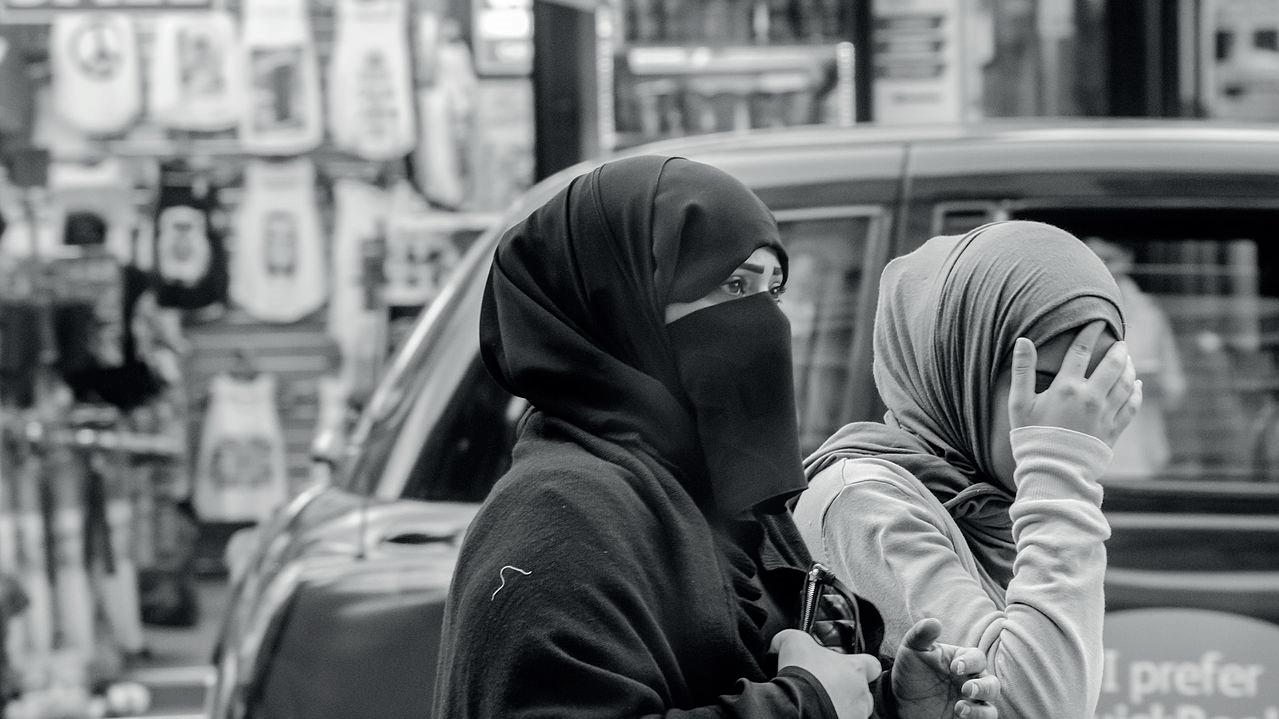
“The fact of the matter is that the Holy Quran has not stated anywhere that a woman’s testimony was worth half that of a man. Rather, if we ponder over the Holy Quran, we see that in such matters that are directly related to women, the testimony of a woman has been accepted in the same way as that of a man. Hence, in case of li‘an, the method of testimony that has been stipulated in Surah an-Nur, there is no
“‘And as for those who calumniate their wives, and have not witnesses except themselves — the evidence of any one of such people (shall suffice) if he bears witness four times in the name of Allah (saying) that he is surely of those who speak the truth. And (his) fifth (oath shall be to say) that Allah’s curse be upon him if he be of the liars. But it shall avert the punishment from her if she bears witness four times in the name of Allah (saying) that he is of the liars. And (her) fifth (oath shall be to say) that the wrath of Allah be upon her if he speaks the truth.’ (Surah an-Nur, Ch.24: V.7-10)
“Moreover, it is also proven from Hadith that the Holy Prophetsa separated a married couple on account of the testimony of a single woman who said that she had nursed both the bridegroom and the bride during their childhood. Hence, Hazrat ’Uqbara bin al-Harith relates that he had married the daughter of Abu Ihab bin Aziz. Later on, a woman came forward and said, ‘I have nursed ’Uqba and the woman whom he has married. (Hence, they are foster-siblings and their marriage is invalid.)’ ’Uqba said to her, ‘Neither did I know that you had nursed me, nor did you previously inform me about it.’ Then ’Uqba mounted his ride and went
“As far as the testimony of men and women in cases dealing with debts or loans is concerned, since such cases are generally related to men and not directly to women, we have been instructed that, if the men appointed to testify in such cases are not available, two women should be appointed along with a man, so that if the woman who is testifying forgets the details of her testimony, the other woman may remind her.
“In other words, even in this scenario, the actual testimony is only that of one woman. The second woman is only appointed as a precautionary measure to remind the first one lest she forget because such issues are not directly related to her. The text of the Holy Quran also supports this understanding, as it states:
“‘O ye who believe! when you borrow one from another for a fixed period… And call two witnesses from among your men; and if two men be not (available), then a man and two women, of such as you like as witnesses, so that if either of two (women) should err (in memory), then one may remind the other.’ (Surah al-Baqarah, Ch. 2, V. 283)
“Thus, whether it is a woman or a man, the status and importance of the testimony of both is equal even in cases related to loan transactions. However, since financial deals are usually not related to women, we have been instructed to appoint another woman with the testifying woman to help her by reminding her of the matter in case she forgets the details of the case. This is so that neither of the two parties in the case may be wronged because of her forgetting.”
Someone from Syria presented his research regarding the existence of some elements of
interest [riba] in stock trading etc. to Hazrat Amirul Momineen, Khalifatul Masih Vaa Huzoor-e-Anwaraa, in his letter dated 28 September 2021, commented on it as follows:
“Conducting academic research is a very good idea. You may by all means do research on this and share your findings with me. As far as the presence of elements of interest in various types of businesses in the present era is concerned, the following statement of the Promised Messiahas, the Hakam ‘Adl of this age, is fundamental to understanding this phenomenon. Huzooras states:
“‘In recent times, most jurisprudential issues in this country have become convoluted. There is one or the other element of interest [riba] involved in every trade. This is why renewed ijtihad is needed in this age.’ (Al-Badr, nos. 41-42, vol. 3, 1-8 November 1904, p. 8)
“While defining interest on another occasion, the Promised Messiahas stated:
“‘The sharia defines interest as lending money to someone for a prearranged profit in return. Whenever this definition is applicable, it is considered interest. However, if the borrower does not pledge any [such payment] but voluntarily pays back extra, then that amount would not be considered interest. Therefore, when it comes to the fulfilment of pledges, prophets have always acted favourably towards others. If a king borrows some money and voluntarily returns more [than the principal amount] and he, as the borrower, does not pay it with the intention that it is interest fee, then it is not considered interest, rather a favour from the king. Whenever God’s Messengersa took a loan from someone, at the time of repayment he would always return some extra. One should only be mindful not to be desirous of it. However, if one received an additional sum contrary to one’s desire or expectation, then that would not be considered interest.’ (Al-Badr, no. 10, vol. 2, 27 March 1903, p. 75)
“Thus, the interest that Islam has forbidden results from a person lending money to someone with the intention of getting back a premium on top of the principal amount given as a loan. However, if the borrower returns something extra voluntarily, it is not considered interest.

“Moreover, the banking system has become an integral part of almost every wordly business nowadays. And most of the world’s banking systems have some element of interest in them, which then becomes part of those businesses as well. That is why Huzooras stated that there was some element of interest involved in every trade, due to which renewed ijtihad was required in this age.
“Under such circumstances, if a person remains given to a lot of doubt and suspicion, then his life would become unbearable, because some interest money would have been invested somewhere in the companies that do business with the clothes that we wear in our daily lives. Then, the bread we eat, there will be some involvement of interest money at some stage or another in its business. And if a person wants to abandon all these worldly needs in favour of merely sitting in his house, which is obviously impossible, even then, his house would have been made of bricks, sand and cement and the companies that make these materials also would have dealt with interest
or used interest money in their businesses.
“Hence, one should not create unnecessary difficulties for oneself by subjecting such matters to extreme scrutiny and falling into suspicion. It is also mentioned in a hadith as narrated by Hazrat Aishara that:
was not sinful; but if it was sinful, he would remain far from it. By Allah, he never took revenge for himself concerning any matter that was presented to him, but when Allah’s limits were transgressed, he would take revenge for Allah’s sake.’ (Sahih al-Bukhari, Kitab al-hudud)
[The Badr of 16 July 1904 also reported the following:]
Europe
“‘A group of people said to Allah’s Messengersa, ‘Some people bring us meat and we do not know whether they mention Allah’s name or not (while slaughtering the animal).’ He said, ‘Mention Allah’s name (i.e. recite the basmalah) on (the meat) and eat it.’’ (Sahih al-Bukhari, Kitab al-Buyu‘)
“The Promised Messiahas was asked whether it was permissible to eat food prepared by Hindus. He stated:
“‘The sharia has made it permissible. The sharia does not insist on such restrictions; rather, it pays emphasis on:
“‘[He indeed (truly) prospers who purifies it. (Surah al-Shams, Ch.91: V.10)]. The Holy Prophetsa would eat items prepared by Armenians and, in any case, one cannot do without it.’ (Al Hakam, no. 19, vol. 8, 10 June 1904, p. 3)
[...]
“Thus, one should act with piety when tending to the various matters and worldly affairs, without giving way to suspicion and doubts. And where there is a direct possibility of committing a prohibited act or the prohibition of something is clearly evident, then it should be avoided at all costs. In this regard, there is another hadith of the Holy Prophetsa that guides us in the best possible manner. Hazrat Aishara states:
“‘In the same way, it is also mentioned about the Promised Messiahas that on one occasion, the astonishing inventions of Europe and America were mentioned before him. In the same mention, it was also said that the canned milk and broth etc., which was imported from overseas, was very exquisite and clean, and one of its qualities were that it had not been touched by human hands at all. Even milk was obtained by machines. Upon hearing this, the Promised Messiahas said:
“‘‘Christians have now become a nation that does not care about the boundaries of religion and what religion has declared lawful or unlawful. Pork is extensively consumed by them. The name of God is not mentioned on the animals they slaughter; rather, as has been reported, their heads are severed like a jolt. Therefore, it may be possible that the biscuits and milk etc. that are produced at their factories contain lard and pig milk. Thus, in our view, the consumption of these biscuits or such milk and broth etc. from abroad is completely against piety and impermissible. Under such circumstances, where pig breeding and pork consumption are a common practice among these people in the West, how can we assume that there would be no element of it in other food items that these people prepare and export?’
“‘From reading this incident, the readers [of Badr] can gauge with what piety and meticulousness the Promised Messiahas used to deal with such things. However, since there were some of us who had had the opportunity to travel extensively and some brothers are still in distant lands such as Africa etc. who may need this kind of milk and biscuits etc., considering them too, [the Promised Messiahas] was asked again. Moreover, it was said about the food of the Hindus that they also kept things very dirty and their vessels would often be licked by dogs.
“‘Upon hearing this, the Promised Messiahas said:
“‘In our view, that food of Christians is halal, about which there is no doubt and which has not been declared haram by the Holy Quran. Otherwise, it would be tantamount to not eating certain items at home, considering them to be haram, but eating them outside from the hands of Christians. And this does not only depend on Christians, if there is ever a suspicious kind of Muslim, we cannot even eat his food. For example, if a Muslim is insane and does not know about haram and halal, then what can be trusted about his food or other prepared items? That is why we do not let our family consume English biscuits but order them from a Hindu company in India. As compared to Christians, the situation with Hindus falls under compulsion [iztirar] because they have mingled with us a lot and only their shops are found everywhere. If there are Muslim shops and everything can be found there, then, of course, one should not buy food items from [Hindus].’ (AlBadr, no. 27, vol. 3, 16 July 1904, p. 3)
“‘Whenever the Holy Prophetsa was given an option between two things, he used to select the easier of the two as long as it
“‘On this, Abu Saeed Sahib, known as Arab Sahib, a rice trader from Rangoon, related the following incident before the Promised Messiahas: There was a biscuits and bread factory in Rangoon that used to be owned by the British. It was then bought by a Muslim businessman for around 150,000 rupees. When he checked the accounts, he found that lard had also been purchased for the factory. Upon his inquiry, the factory’s previous owners informed him that it was used in biscuits etc. because without it these products would not be tasty and that such fat was also added to such products in
“Thus, in summary, a person should neither become too given to suspicion and doubt and avoid the use of lawful things for no reason, nor should one have a careless attitude and use every lawful and unlawful thing. Instead, one should try to live according to Islamic teachings by carefully examining matters to an appropriate and careful extent.”
(Compiled by Zaheer Ahmad Khan, Head of Records Department, Private Secretariat, London. Translated by Al Hakam.)
Recently, the Israeli orientalist, Yohanan Friedmann, Professor Emeritus of Islamic Studies at the Hebrew University of Jerusalem – known in his field as an authority on the Ahmadiyya Movement through his work Prophecy Continuous – published his latest monograph entitled Messianic Ideas and Movements in Sunnī Islam. As expected, he devotes a chapter to the founder of the Ahmadiyya Muslim Jamaat, Hazrat Mirza Ghulam Ahmadas, alongside three other claimants to mahdihood. As an avid student of all things academic regarding Islam in general and Ahmadiyya in particular, I naturally set out to explore this recent publication. Friedmann’s monograph can undoubtedly be described as a meticulous and profound work of serious scholarship.
Unfortunately, however, he made a material mistake in one of his assessments, which, after Prophecy Continuous (1989) and a book chapter entitled Conversion, Apostasy and Excommunication in the Islamic Tradition (2016), is now repeated uncorrected for at least the third time in this most recent work, Messianic Ideas and Movements in Sunnī Islam (2022), which I would like to address and elaborate on here.
In the present article, however, for the sake of brevity, I will, unfortunately, have to limit myself to examining the one quotation that Friedmann repeatedly cites in all three publications. Nevertheless, in due course, Friedmann’s other quotes and arguments, especially in his main work Prophecy Continuous, will also be examined in detail to show their lack of validity for the conclusions drawn.
Let me first reproduce verbatim the statements at issue from his publication this year before analysing them. Friedmann writes:
“When discussing the three mahdīs in the previous chapters, we said that each one of them considered those who did not acknowledge their messianic claims and did not join their movements as infidels. The idea that Muslims who do not acknowledge Ghulām Aḥmad’s messianic status are unbelievers does exist in his works, but not in his early ones. Then he maintained that nobody can become an infidel by rejecting his messianic claim. This was his view despite the fact that Sunnī Muslims issued fatāwā declaring him an infidel soon after he made his claim to spiritual eminence in 1889. However, in his later years Ghulām Aḥmad’s views developed in an exclusionary direction. In the last years before his death in 1908, he stated that anybody who rejected his claim to spiritual eminence was an infidel. The most unequivocal statement of
this attitude is found in the fifth volume of the Barāhīn-i Aḥmadiyya, written in 1905. It reads: “He who denies this mission, will be declared infidel” (jō shakhṣ is daʿwē sē munkir hay wuh bi-har ḥāl kāfir therāʾēgā). It is thus clear that all four messianic claimants discussed in this work eventually developed an exclusionary attitude to Muslims who did not join their movements.
It is, however, noteworthy that in recent decades the Aḥmadī movement seems to have distanced itself from the stringent views of its founder in the last years of his life.” (Yohanan Friedmann, 2022, Messianic Ideas and Movements in Sunnī Islam, London: Oneworld Publications, 5, III)
A few passages further, he continues:

“The case of Ghulām Aḥmad is more complex. He is the only mahdī discussed in this book whose attitudes to his opponents changed during his lifetime. As we have seen in Chapter 5, he started with a rather ecumenical stance, refusing to anathemize anyone who utters the Muslim declaration of faith (kalima-gū). Only later he declared those who rejected his claim to be a mahdī as infidels.” (Ibid.)
Although, as mentioned, Friedmann provides further quotations and arguments in his other publications, which will be examined separately at a later stage, he only gives one single quotation here, which, as mentioned above, he calls “[t]he most unequivocal statement”. In Prophecy Continuous, he also referred to this quote as one of the “clearest statements declaring the non-Aḥmadīs to be infidels” by Ghulam Ahmadas
First, it must be clear that this quoted statement is part of an explanatory footnote to an Arabic word of a divine revelation that cannot be understood independently of this context. Friedmann also omits to cite the sentences in the footnote preceding his quotation, which could also have shed light on the matter. For the sake of clarity, the original Urdu text is reproduced in its entirety here:
Mirza Ghulam Ahmad, 1905, Barahin-e Ahmadiyya V, In: Idem, 2021, Ruhani Khaza’in, Farnham: Islam International Publications, Vol. 21, p. 82)
Here, Hazrat Mirza Ghulam Ahmadas explains why, according to his reasoning, it is correct to adopt both variant readings, i.e., not only kafara but also kaffara. He who uses the label of infidel for the claimant, i.e., for Hazrat Ahmadas, will anyhow be a denier of him, and one who denies his claim will no doubt declare him an infidel. So, it is not the one who denies Hazrat Mirza Ghulam Ahmad’s claim that is declared an infidel by him, but rather it is the one who denies his claim who then also goes on to declare Hazrat Ahmadas to be an infidel. The one denying (munkir) and the one declaring infidel (mukaffir) are, for all intents and purposes, one and the same person.
to who the grammatical agent is and who the grammatical patient is, i.e., who declares whom infidel? The answer to this becomes clearest if we look more closely at other instances where Hazrat Mirza Ghulam Ahmadas notes and comments on this very revelation, as he does here.
The revelation in question, which was first mentioned in Barahin-e Ahmadiyya IV in 1884, and to which this sentence is a clarifying footnote, is as follows:
Translation: “And (remember the time) when the one who denied (or declared infidel) plotted against you: Set fire for me, o Haman, that I may have a look at the God of Moses, for I think that he is a liar.”
Translation:
“This word [kfr] has both variant readings, ‘to declare someone to be an infidel’ (kaffara) and ‘to deny’ (kafara), for he who declares himself to be an infidel will anyhow also be a denier, and he who denies this claim will anyhow declare himself to be an infidel. Also, the word haman alludes to the word haiman, and haiman is said of one who wanders alone and aimlessly in the wilderness. (Author)” (Hazrat
Friedmann, unfortunately, makes a mistake in understanding the subtleties of the Urdu language when translating the passage he quoted. The Urdu verb گا ئےاٹھہر (t́hehrā’ē gā), conjugated from the infinitive نااٹھہر, also ناار� ھ�, is a transitive verb, but Friedmann mistakenly translates it intransitively. The intransitive counterpart of t́hehrā’ē gā is گا ےٹھہر (t́hehrē gā). So, if it had been t́hehrē gā, Friedmann’s translation of “will be declared infidel” would have been correct. With t́hehrā’ē gā, as it is, however, the meaning has to be “will declare infidel”.
This insight turns Friedmann’s understanding of this sentence completely on its head and it can thus in no way be that the one who denies the mission of Hazrat Mirza Ghulam Ahmadas is declared infidel. Rather, the question then arises as
If only Friedmann had taken the trouble to read the translation of this revelation, which Hazrat Mirza Ghulam Ahmadas himself gave only a few pages further on, he would not have made this mistake. Hazrat Ahmadas writes in unequivocal terms in his Urdu translation of this Arabic revelation:
Translation:
“Remember the deceit of the deceiver, who will declare you infidel and will deny your claim. He will get a companion of his to make out a fatwa in reply to a requisition for a fatwa, in order to incite the people
against him [i.e., Ghulām Aḥmadas].” (Ibid, p. 84)
After the first mention in the 1884 work Barahin-e Ahmadiyya IV, Hazrat Mirza Ghulam Ahmadas translates the Arabic text of this revelation into Urdu as follows:
Translation:
“Translation: Recall the time when a Pharaoh would declare you infidel and ask his companion Haman, ‘Set ablaze the fire of declaring infidel; namely, compose such a fiery edict the sight of which would turn people into deadly enemies of this man and believe him to be an infidel so that I may see whether the God of this Moses assists him or not. For my part, I consider him a perjurer.’” (Ibid, Footnote)
Translation:
“Remember when the denier, out of a deceit, said to his companion, ‘Prepare a fire of some mischief or tribulation, so that I might find out about the God of Moses – that is, the God of this man – how He helps him, and whether He is with him or not, because I consider him to be a liar.’” (Mirza Ghulam Ahmad, 1884, Barahin-e Ahmadiyya IV, In: Idem. 2021, Ruhani Khaza’in, Farnham: Islam International Publications, Vol. 1, p. 609)

Here the word kfr was read in Arabic as kafara and thus translated as deny
However, in at least two places, once in the sentence preceding the passage quoted by Friedmann, as quoted above, and once in Haqiqatu l-wahy, Hazrat Ahmadas states about this revelation that the word kfr has two variant readings: kafara and kaffara, i.e., to commit kufr, that is, to deny, as well as to commit takfir, that is, to declare infidel.
The passage from Haqiqatu l-wahy, also an explanatory footnote, reads as follows:
Again, from this instance alone, it could have become clear that it is Hazrat Ahmadas who was to be declared infidel according to this prophetic revelation.
Even in a passage in the first part of Haqiqatu l-wahy, Hazrat Mirza Ghulam Ahmadas notes the Arabic text of this revelation and again translates it into Urdu. He writes:
Translation:
“And call to mind the time when the one declared you infidel devised a plan against you and said, ‘O Haman, prepare a fire for me, so that I might find out about the God of Moses because I consider him to be a liar.’” (Ibid, p 83)
In a footnote to this repeated record of this revelation, Hazrat Ahmadas explains:
Translation:
“It should be remembered that in this divine revelation there are both variant readings, ‘to deny’ (kafara) as well as ‘to declare infidel’ (kaffara). And if the meaning is interpreted according to the variant reading kafara, then that meaning will be that the petitioning person will have first believed in me and will have joined the believers and then later will become a rejecter and a denier. And this meaning is very true with Mawlawi Muhammad Husayn of Batala, who in the review of Barahin-e Ahmadiyya evinced such faith in me that he was even willing to sacrifice his parents for me. (Author)” (Hazrat Mirza Ghulam Ahmad, 1906, Haqiqatu l-wahy, In: Idem. 2021, Ruhani Khaza’in, Farnham: Islam International Publications, Vol. 22, p. 368, Sub-footnote)
In a footnote in Haqiqatu l-wahy, to which the above quotation is a sub-footnote, Hazrat Mirza Ghulam Ahmadas again translates this revelation himself. Here is the Urdu original:
“With the one declaring infidel (mukaffir) is meant Abu Sa‘id Muhammad Ḥusayn of Batala, for he wrote the petition (istifta’) and presented it to Nadhir Husayn, and the one who kindled the fire of declaring infidel (takfir) in this country was indeed Nadhir Husayn. He received what he deserved. (Author)” (Ibid, Footnote)
These are by far not all instances in which Hazrat Mirza Ghulam Ahmadas himself noted down this revelation time and time again and clarified who actually declared whom infidel. For example, he did so, inter alia, in Siraj-e Munir (1897), Istifta’ (1897), Tiryaqu l-qulub (1899), Tohfa-yi Golarviyya (1900), Arba‘in (1900), Nuzulu l-Masih (1902), etc.
I would like to end this short article by citing only two of the many quotations from the last period of Hazrat Ahmad’s life that disprove Friedmann’s misconception that “later he declared those who rejected his claim to be a mahdī as infidels”.
In Haqiqatu l-wahy, which was written in 1906 and published in 1907, Hazrat Mirza Ghulam Ahmadas writes:
Translation:
“Moreover, look at their lie that they accuse me of declaring 200,000,000 Muslims who recite the declaration of faith in Islam (kalima) as infidels, whereas we did not take any initiative in this matter. Their scholars issued edicts of infidelity (kufr) against us on their own and caused a furore in the Punjab and India that these people [Ahmadis] are infidels. Because of these edicts, the ignorant people began to hate us to such an extent that they started considering it sinful to even address us politely. Can any maulawi, or any other opponent, or any custodian of a shrine prove that we were the first to declare them infidel? Let them produce any document, announcement, or treatise published by me prior to their own edicts of kufr against us, in which I had pronounced my Muslim antagonists to be infidels; otherwise, they should consider how dishonest it is that they are the ones who declared us to be infidels, yet accuse us of denouncing all Muslims as infidels. How hurtful is such dishonesty, falsehood, and obfuscation of the facts. Any reasonable person can understand that now that they have declared us to be infidels through their edicts—and are themselves agreed that if any person declares a Muslim to be an infidel, then this [false charge of] kufr reverts to him—was it not our right to call them infidel in accordance with their own admission?” (Ibid., p. 123)
On his last visit to Lahore, Hazrat Ahmadas was visited by Sir Mian Fazl-i
Husayn in May 1908. During their conversation, Hazrat Ahmadas said to him in response to his questions:
Translation:
“We do not deem any person who recites the declaration of faith (kalima) as a person outside the pale of Islam until such a one calls us an infidel (kafir) and [in doing so] himself becomes a kafir. You may not be aware, when I claimed to be appointed [by Allah], then Muhammad Husayn of Batala, Maulawi Abu Sa‘id prepared a religious edict (fatwa) with great effort in which it was written [alluding to Hazrat Mirza Ghulam Ahmadas] that ‘this person is an infidel (kafir), an imposter (dajjal), a misguided one (dall); his funeral prayer should not be offered; whoever says ‘Peace be upon you!” (as-salamu ‘alaykum), greets him, or calls him Muslim also becomes a kafir’. You see, it is a matter of consensus that whoever calls a person a kafir, he himself, becomes a kafir. So how can we deny this matter? […] Such a one who does not call us a kafir, we do not call them a kafir at all. However, if those who call us kafir, [and in doing so] we should not consider them as kafir, then that is to oppose the hadith and the agreed-upon issue, and this we cannot do.” (Badr, Lahore, Vol. 7, No. 19-20, 24 May 1908, p. 6.)
There was a Persian newspaper called Hubl al-Matin published from Calcutta. We do not know if it is still running or not. In 1915, I received the instructions of Hazrat Khalifatul Masih II[ra] while I was in Calcutta that if an announcement about the Ahmadiyya Jamaat was published in the newspaper Hubl al-Matin, the message of Islam Ahmadiyyat could reach Iran.
For this purpose, I went to meet the editor of Hubl al-Matin. In those days, he had recently lost his eyesight. [When I entered his office], he had mail in his hand. He would scrabble through it and hand over a letter to the clerk, who would read it out. He was very stubborn. When he heard about the announcement of Ahmadiyya Jamaat, he became very upset and strongly refused.
For everything, there is a time prescribed by God Almighty. At present, numerous articles from The Moslem Sunrise are being translated and published in Iranian newspapers and we are not spending a penny on them. The Jamaat is highly commended in these newspapers and the services of the
Ahmadiyya Muslim Community for Islam are being acknowledged. We have received an Iranian newspaper named Badr dated 8 Dhul-Qa‘dah 1340 AH [3 June 1922] from Tehran. It has devoted a full-column article to The Moslem Sunrise magazine, a few lines of which are presented below for the readers:
at night, and thus there are 24 hours in a day. The same is the case in the United States of America, but on Sunday, 24 August [1922], there was a 25-hour day in this country. This is because in winter, when the days are shorter, offices and shops open an hour earlier in the morning to close early before nightfall and save on electricity costs.
there [in Detroit] and in the last week, he has converted ten Christians to Islam. I have received their requests for bai‘at here [in Chicago].
Muhammad Sadiq. 4448 Wabash Ave., Chicago, Ill., America.
[“We are very proud that we have gradually translated some of the articles and essays of the esteemed Ahmadiyya Movement from The Moslem Sunrise magazine, which is published in the English language in America and circulated all over the world. We are publishing them only for the guidance of the countrymen and for the delight of the hearts of the believers.”]
According to the British reckoning, each day starts at 12 am and ends at twelve o’clock
If the people are simply told that the offices will now open at 8 am instead of 9 am, they might arrive late. Therefore, the wise men of this country have thought of an easy remedy for this that the clocks in the city should be set back one hour. At three o’clock on Sunday morning, the clocks of all centres and government offices were moved back one hour to two o’clock. Some people stopped their clocks for an hour and then started them again. With the arrival of the Spring season, the clocks will be turned back.
A new African convert who converted to Islam in Chicago has moved to Detroit and is employed there. His name is Mr Hull. He regularly carries out tabligh [preaching]
For a long time, efforts were being made to purchase land and make other construction arrangements for the Ahmadiyya Mosque in Germany. Now, since September [1922], Maulvi Mubarak Ali Sahib has been present there [in Germany] for this very purpose and his letter has been received, stating that by the grace of Allah the Almighty, an arrangement to buy two acres of land had been made. According to the exchange rate, the total expenditure for the purchase of land and construction of the mosque is estimated to be around 20,000 rupees.
It is the desire of Hazrat Khalifatul Masih II[ra] that instead of making a general appeal to members of the Jamaat, a few friends should present this amount as soon as possible to get the benefit of the current exchange rate. The donations should be submitted to the fund under the name “Ahmadiyya Mosque Germany” by 15 December 1922.
Wassalam, Nazir Bait-ul-Mal [Master Abdul Mughni].
(Translated by Al Hakam from the original Urdu, published in the 13 and 20 November 1922 issue of Al Fazl)
Jamaat-e-Ahmadiyya Adelaide West held a Tabligh and Quran exhibition stall at 145th Millicent Show. The dates of the shows were 4-5 November 2022. The preparations started a couple of months in advance. A team of six members was formed, with dedicated duties assigned to each member.
On the evening of 3 November 2022, the community van was loaded with the required stuff. The tour started on 4 November after the Fajr prayer. After the silent prayer, members were given general instructions for the tour. The contingent travelled together in a community van towards Millicent.
The first stop was at Tailem Bend, where the members had a friendly chat with locals over breakfast. The next stop was Meningie to meet locals and then Kingston, where we stopped for peace pamphlet distribution. Upon reaching Millicent, members set up the stall and then offered Jumuah and Asr prayers in congregation at the AH&P society hall. The gates opened for the general public at 1 pm. The locals greeted our members
delightedly and asked questions.
During the course of the day, the stall was visited regularly by both dignitaries and the general public. Atif Ahmad Zahid Sahib, a missionary, was there to lead the team in fruitful discussions with visitors on various topics, including the introduction of Ahmadiyyat, Islam being a peaceful religion, brotherhood and harmony between different religions. Noteworthy dignitaries attended the stall as well and amongst them was Mr Des Noll, Mayor of Millicent. Des welcomed us to the show and said he was very pleased we were there to attend the show; he spent quite a few hours interacting with our team. During his interview, he said:
“Let me take this opportunity to welcome you as a Muslim community to the Millicent community; we are very pleased to have you here. One of the strong things about our community is that it is built on diversity; our community is very proud of the diversity that we have, which creates a solid foundation. We are a very connected community and that’s very important to us, so we’re very pleased to have you here and spend some time with you and learn about your culture.”
On estimate, there were around
350 people who visited the stall. Jamaat literature, including books such as The Philosophy of the Teachings of Islam, and An Elementary Study of Islam, were gifted to people visiting, along with peace pamphlets and sweets for children. During the course of the day, there were around 3000 visitors attended the show.
Day two started at 9 am when the doors were open for the general public. Like day one, day two was also very well attended. Traditionally, the second day of the show is for the family audience, where a large number of young kids with their parents attend the show. A huge crowd from Millicent, Mount Burr, and Mount Gambier attended the show. People showed keen interest in our stall and it was very busy from the very beginning.
The senior vice president of the Millicent show, Ms Sue Vanderheul, came and visited the stall, interacted with team members and recorded an interview in which she said:
“The Ahmadiyya Muslim Community has been here for a few years now, they set up and they’re always very well presented, and everybody comments on how nice and friendly they are and they’re always welcome here.”
Many visitors came and interacted with the team, however, Mr Mori spent considerable time with us and on meeting us, he said:
“I’ve always been interested in different religions and I would like to be able to stop the preconceived idea that all religions are bad or whatever. So, we’ve travelled overseas to many Islamic countries and found them very interesting. They’re just normal people wanting to live normal lives and normal religions. Great people, easy to talk to here, enjoyed talking with and meeting them.”
On the way back, members also visited the towns of Port Macdonnell, Beachport and Naracoorte, and placed some books in the libraries of these towns, which will be a great addition to their collections. The management of the libraries was appreciative of our visiting them.
The event was successful and the message of Islam Ahmadiyyat was conveyed to many new people. Many people visited the stall and were introduced to Islam Ahmadiyyat. New contacts were formed for future propagation and advance booking for the next year’s show was also made.
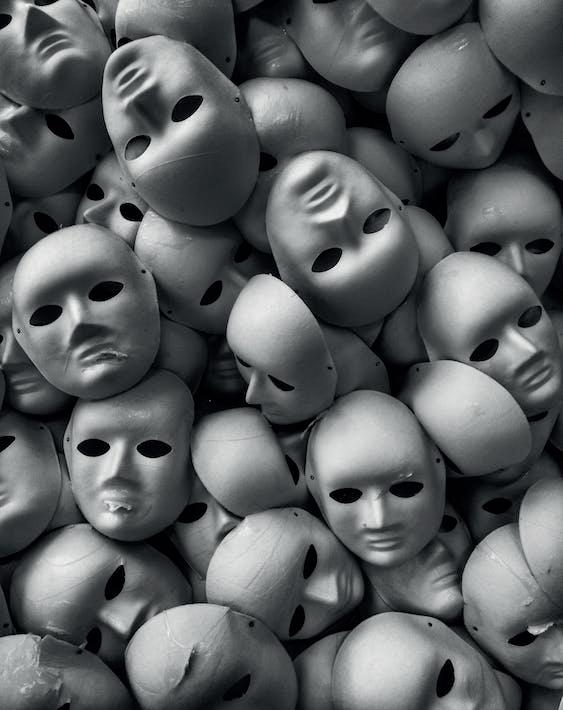 Rizwan Khan Missionary, Connecticut, USA
Rizwan Khan Missionary, Connecticut, USA
Munafiqat – hypocrisy – within Islam is not a new topic, it was munafiqat that was the source of the disorders during Khilafate-Rashida. It wasn’t the disbelievers who broke the unity of the Muslims, it was the hypocrites, those who claimed to give bai‘at to the Khalifa but underhandedly opposed him behind his back, who broke the unity of the Muslim community.
Hazrat Khalifatul Masih V, may Allah be his Helper, has explained those disorders in detail in his Friday Sermons on the Khulafae-Rashideen, particularly during the Khilafat of Hazrat Uthmanra and Hazrat Alira. We are taught these lessons from history so that we may learn from them.
Munafiqeen exist in every divine community. This is a disorder that has to be taken seriously today. The disorders that happened in early Islamic history were a result of not taking munafiqeen as seriously as they should have been.
Hazrat Musleh-e-Maudra said:
“Some foolish people in the Jamaat don’t take the disorder of the munafiqeen [hypocrites] seriously and say that God will protect this movement. Don’t they see what a foul person from the children of Hazrat Abu Bakrra did during the era of Hazrat Uthman? They [the Muslims] also thought God is the Protector of Islam and they showed neglect in opposing disorders and every Muslim to this day weeps over what resulted.” (Khutbat-e-Mahmud, 27 July 1956, pp. 319-320)
The questions that are important to answer are: What makes someone a munafiq? How do we identify them? Can we point them out? Should we point them out? We’ll start by going over different types of munafiqeen
Those who believed but lost faith
One type of munafiqeen are those who believed but then lost faith. Allah Almighty says:
he should separate himself from them, not stay in them and try to create discord.”
(Tafsir-e-Kabir, Vol. 1, p. 177)
Both believers and disbelievers can agree that if someone isn’t happy with an organisation, then they should leave it rather than stay in it and spread disorder. To stay within the Jamaat and the bai‘at of the Khalifa, and then to oppose him behind his back, is disgraceful in the eyes of anyone with self-respect.
It is the moral obligation of munafiqeen to leave, not pretend to believe and be part of a religious community and then act treacherously against it. This is why the munafiqeen are so disgraced in the eyes of the world and in front of Allah Almighty. This disgrace is found in the root meaning of the word munafiq itself. According to dictionaries, the Arabic root of munafiq has the following meanings:
“عوبريلا قفان means, the rat known as yarbu‘ betook itself to its hole. ءاقفانلا means a hole in the earth having two open ends, which the rat enters, concealing one end and leaving the other exposed, so that in time of danger it may avail itself of the concealed end and escape through it. قفنلا means a hole or passage through the earth leading up to someplace through an opening at the other end. قافنلا means entering faith
through one door and leaving it through another; acting hypocritically. قفانملا means one who conceals disbelief in his heart and expresses belief with his tongue; a hypocrite. (Aqrab, Taj & Mufradat)” (English Five Volume Commentary of Ch.9: V.67)
A munafiq is like a rat. Disbelievers are not necessarily like this. At least among disbelievers, some were like lions, and when they accepted Islam, their qualities were correctly channelled and they became lions of Allah. One positive in disbelievers is that there are many who, when they became believers, their qualities of bravery and decisiveness made them the most honoured in the history of Islam.
The Holy Prophetsa said:
“You see that the people are of different natures. Those who were the best in the preIslamic period, are also the best in Islam if they comprehend religious knowledge
“And you will find the worst amongst people is the double-faced (person). He comes with one face to them and with the other face to the others.” (Sahih Bukhari, Virtues and merits of the Prophetsa and his Companionsra, hadith no. 3493)
We can appreciate some of the qualities of a disbeliever, but the spinelessness of a munafiq disgraces them. A munafiq is
like a rat whether among the believers or the disbelievers. This two-faced nature of munafiqeen is a source of disgrace for them in this world and the next. This is why they are described as the worst of people: رانلا نم لفسالا کردلا ىف نيقفنملا نا
“The hypocrites shall surely be in the lowest depth of the Fire;” (Surah an-Nisa, Ch.4: V.146)
The Promised Messiahas said:
“Remember that certainly, a munafiq is worse than a disbeliever because a disbeliever at least has bravery and decisiveness. He bravely expresses his opposition. A munafiq does not have bravery and decisiveness, he hides his opposition.” (Malfuzat, Vol. 8, p. 293)
Hazrat Musleh-e-Maudra explained that the Holy Prophetsa never forced anyone, but since he did have government, one could misunderstand and say that the hypocrites were afraid of his sword. However: “In such a peaceful age when no one can harm anyone, if someone’s temperament inclines towards hypocrisy, they are a very illnatured person. If someone does munafiqat now, they are a thousand times worse in their hypocrisy than at the time of the Holy Prophetsa.” (Khutbat-e-Mahmud, 25 September 1914, p. 183)
Some munafiqeen say they stay in the Jamaat because of a fear of social pressure from their family. But how do they summon the courage to make any other adult decision in their lives? These excuses are childish and should be called out as such. How do they decide whom they want to marry? If they want to marry someone, and their parents or their grandmother puts social pressure on them to marry someone else, are they so obedient to their parents that they will blindly follow? These excuses aren’t acceptable anywhere from any adult. How do they make any decisions about their life as adults?
“Offer no excuse. You have certainly disbelieved after your believing.” (Surah atTaubah, Ch.9: V.66)
This verse shows that they did sincerely believe at one point. They believed in the Khalifa at some point and sincerely gave bai‘at, but then they lost faith and started opposing him underhandedly.
The moral obligation of munafiqeen to leave
If someone decides they no longer believe in a religion and they want to oppose it, they should have the self-respect to leave that religion and openly oppose it.
Hazrat Musleh-e-Maudra said: “If someone is not happy with the organisation or doctrines of a community,
One of the signs of such munafiqeen is that they won’t complain to the Khalifa when they have a complaint or an objection against him or the Jamaat, rather, they’ll spread ill-thinking against him among the Jamaat.
If they have an objection against the Khalifa or the Jamaat, they should share it with the Khalifa, or those appointed for reformation within the Jamaat. It is possible for someone to have developed some disagreement with the Khalifa in his heart. However, it is his duty to present his doubt to the Khalifa, so that he can dispel that doubt. (Minhaj-ut-Talibeen, Anwar-ulUloom, vol. 9, pp. 162-164) Disagreement is allowed, but disobedience and defiance are not. A munafiq is someone who spreads
defiance against the Khalifa amongst people through their actions or words. If their actions undermine the Khalifa and the Jamaat, while they give bai‘at to the Khalifa, then what they are doing is munafiqat
The Khalifa is the one they have given bai‘at to. They have no excuse not to share it with the Khalifa if they are sincere. If they don’t trust the Khalifa, whom they claim to believe is chosen by God, whom can they trust? If they don’t think he will do justice, what is the meaning of their bai‘at?
It is narrated in Sahih Bukhari:
“On the day [of the battle] of Hunain, Allah’s Messengersa favoured some people in the distribution of the booty […] Then a person came and said, ‘By Allah, in this distribution justice has not been observed, nor has Allah’s pleasure been aimed at.’ I said [to him], ‘By Allah, I will inform the Prophet[sa] [of what you have said],’”
This part of the narration teaches us that the Companionsra would inform the Holy Prophetsa if anyone said something that was hypocritical and that it is also our responsibility to inform the Khalifa. The narrator continues:
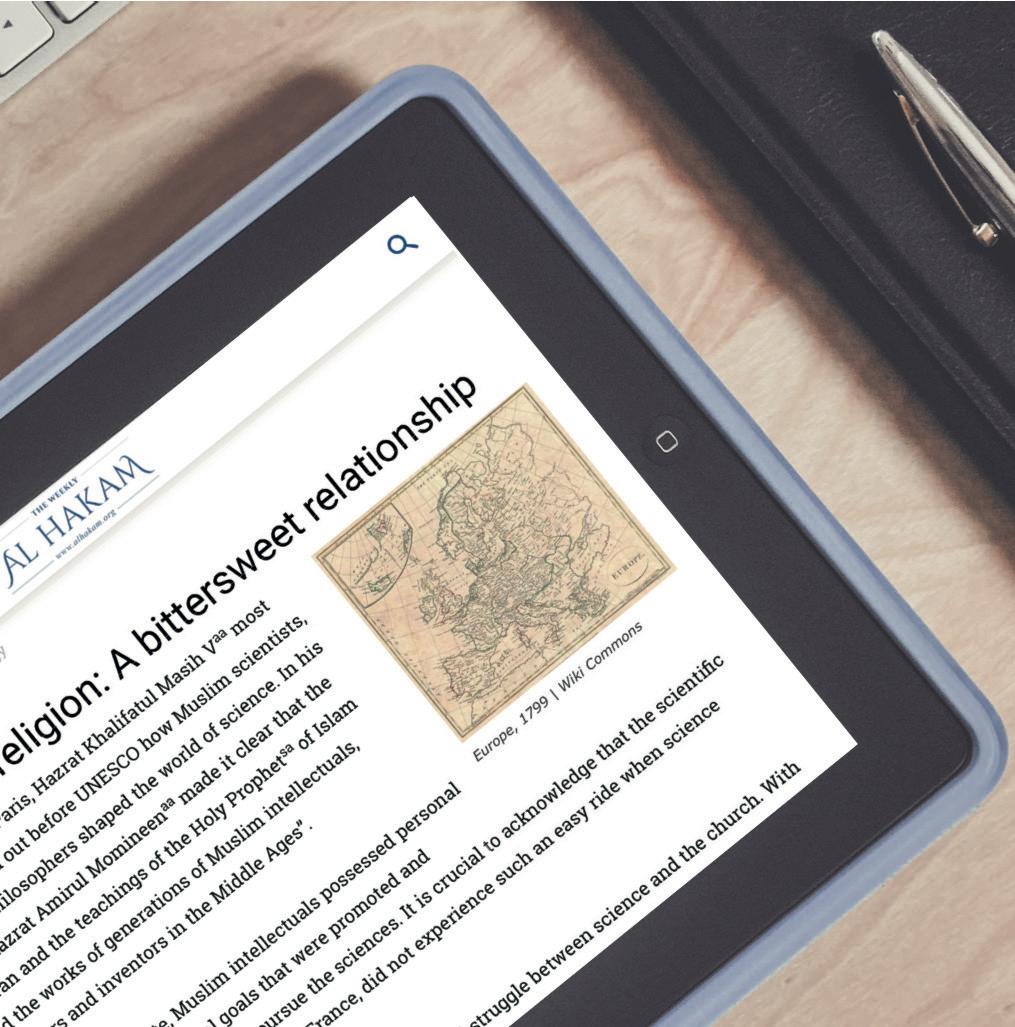

“I went and informed him, and he said, ‘If Allah and His Apostle did not act justly, who else would act justly? May Allah be merciful to Moses, for he was harmed with more than this, yet he kept patient.’” (Sahih Bukhari, One-fifth of Booty to the cause of Allah (Khumus), hadith no. 3150)
Now, how can munafiqeen claim to believe the Khalifa is truly appointed by God and give bai‘at to him if they don’t believe he is just? The Holy Prophetsa also had to deal with munafiqeen like this who would attack him behind his back, as did Hazrat Musaas Hazrat Musleh-e-Maudra has said:

“Hypocrites are so foolish that, on the one hand, in their sittings, they talk about what they perceive to be evils in the Jamaat and the Nizam, but when a believer meets with them and tells them to convey this to the Khalifatul Masih they say they don’t want to needlessly escalate things.
“On one hand they spread sedition and discord, on the other, they express they hate discord, although the way they criticise is sedition itself. But when they are asked why they don’t mention their complaints to the Khalifatul Masih, they pretend to be great reformers and say that ‘we don’t want to start any discord, if we complain, then what will he say?’” (Khutbat-e-Mahmud, 5 August 1938, p. 491)
If these munafiqeen were sincere in saying they wanted to promote peace, they would share their objections with the Khalifa. But they spread discord by going behind his back. This is munafiqat Hazrat Musleh-e-Maudra said:
“If their objective was only reformation, they should have brought those responsible in the Nizam to notice about the issue, rather than having their separate sittings and saying it there”. (Khutbat-e-Mahmud, 5 August 1938, p. 505)
“The greatest sign of a person’s munafiqat is that they won’t complain to the person they have a complaint against, instead, they’ll spread ill-thinking against them among people. Seeing this sign, if someone cannot recognise a munafiq, there is no one more foolish than them. Recognising a munafiq is easier than recognising anything
else. (Khutbat-e-Mahmud, 3 June 1949, p. 140)
If we keep this characteristic in mind, we won’t have any trouble identifying munafiqat
Another category of hypocrites is those who mix faith and hypocrisy. They believe in Islam and Ahmadiyyat and Khilafat, but their connection is only with their minds, not with their hearts. In doctrines, they believe in the Khalifa, but since their hearts are not attached to the Jamaat they criticise and condemn the Jamaat of Allah.
Hazrat Musleh-e-Maudra explained this verse of the Holy Quran describes their state:
“whenever it shines upon them, they walk therein; and when it becomes dark to them, they stand still.” (Surah al-Baqarah, Ch.2: V.21)
Allah Almighty says about them:
“In their hearts was a disease,” (Surah al-Baqarah, Ch.2: V.11)
Meaning that, “They have faith in their hearts, but along with it is a disease.” (Khutbat-e-Mahmud, 5 August 1938, p. 499)
The Holy Prophetsa described this type of munafiq:
“A heart which houses both iman and nifaq; the iman within it is like a herb which is sustained by pure water, while the nifaq in it is like an ulcer that thrives on puss and blood – whichever of the two receives more of its sustenance will overcome the other.” (Musnad Ahmad, as quoted in Tafsir-eKabir, Vol. 1, p. 201)
One sign of these munafiqeen is that while they believe in Khilafat, they have lost
faith in the Jamaat. There are weaknesses in some office-bearers, this is inevitable in any community, however, what makes someone a munafiq is that they speak broadly of the Jamaat as being corrupted. They don’t realise that losing faith in the Jamaat of Allah eventually leads to disbelieving in Khilafat and then the Promised Messiahas Hazrat Musleh-e-Maudra said:
“A broad sign of a munafiq that the Promised Messiahas explained, is that they will criticise the Jamaat and openly say that the Jamaat has been corrupted and ruined. Whoever says that the Jamaat has been ruined, knows that they are a munafiq
“When they say the Jamaat is corrupted, it means that they attack the Promised Messiahas
“The era of prophesied progress has not yet come, if the Jamaat is corrupted, how can the Promised Messiahas be a true appointee of God? The person who says that the Jamaat has become corrupted is himself false. In reality, their own faith has been corrupted. When someone is sick, everything tastes bitter to them.” (Anwar-ulUlum, Vol. 10, pp. 93-94)
This characteristic of munafiqeen has also been described by the Holy Prophetsa: “When a person says: ‘People have been ruined’, he himself is the most ruined among them.’” (Sahih Muslim, The book of prohibited actions)
A munafiq can make excuses all they want and say they only criticise the Jamaat because they want to promote reformation and peace. The verdict of the Holy Prophetsa is clear; a person who says the Jamaat has been ruined is the most ruined among them. They are a munafiq. We can’t judge people’s intentions, but if their actions are those of a munafiq, then no matter what excuses they give for their intentions, we can say what they are doing is munafiqat
Allah Almighty says:
“And when it is said to them: ‘Create not disorder on the earth,’ they say: ‘We are only promoters of peace.’ Beware! it is surely they who create disorder, but they do not perceive it.” (Surah al-Baqarah, Ch.2: V.12-3)
Hazrat Musleh-e-Maudra has said: “Abdul Hakeem Murtad also wrote that Maulvi Nuruddin Sahib and one or two other people are good, but the rest have become corrupt. The Promised Messiahas wrote to him that you yourself are corrupted, my Jamaat has thousands of people who are an example of the Sahaba.” (Anwar-ulUlum, Vol. 10, p. 95)
When munafiqeen look at the Jamaat of Allah, why are they filled with such bitterness and cynicism? It is because they are suffering from an illness, ضرم مہبولق ىف, it is a symptom of their illness that they think so negatively about the Jamaat of Allah.
Hazrat Musleh-e-Maudra explained that a believer sees the overwhelming good in his brothers, however:
“Since a munafiq is no longer attached to the movement through a connection of love, when they see these kinds of weaknesses, they say ‘now we see that they also have these wrongs and faults’. Since, now, a feeling of estrangement has developed in him, they begin referring to their own Jamaat in the third person and say that ‘they’ have these faults.” (Khutbat-e-Mahmud, 5 August 1938, pp. 498-499)
A munafiq is quiet when the Jamaat succeeds, but is ecstatic to say ‘I told you so’ when there is a setback, from which it is clear that their objective is to disgrace the Jamaat. (Ibid, p. 502)
The Ahmadi missionary to Mauritius, Hafiz Sufi Ghulam Muhammad Sahib, sent a letter to the Government of France through the French Consul in Port Louis, Mauritius, appreciating their initiative to construct a mosque in Paris.
In response to Sufi Ghulam Muhammad Sahib’s letter, [apart from the French Consul], the Honourary Consul General of France, Si Kaddour Benghabrit, wrote to him:
“Muslim Institute and Paris Mosque, Florentin Street Lower 30-88, Paris, 2 June 1922.
“From, Si Kaddour Benghabrit, Honourary Consul General of France, President of the Society of Habous and Holy Places of Islam.
“Honourable Muhammad Ahmadi! The Ministry of Foreign Affairs, Paris, sent me a copy of your letter, in which you have expressed your sincere thanks on behalf of the Muslims of Mauritius to the Government of the French Republic, which has contributed to the construction of a mosque in Paris. In your view, it will be a standing monument of French kind sentiments towards Islam.
“This mosque and its annexes, i.e. library, guest house, restrooms, etc., which shall be built in the very centre of Paris, will come into being with the help of the French government and the donations of those Muslims of the world who are to be honoured through its construction.
“If the Muslims of Mauritius are also desirous of taking part in this work and want to join with their brethren of Africa and Asia in the expenses which will be required for [the construction of the Paris Mosque], this society informs them through you [Hafiz Sufi Ghulam Muhammad Sahib] that a donation campaign has been started in Islamic countries and the collected sums will be deposited in the following bank in Paris:
“Crédit Foncier of Algeria and Tunisia, 43 Cambon Street, Paris.
“I will be very grateful to you if you acknowledge our society’s appeal that I lay before the Muslims of Mauritius and draw their attention towards this donation and encourage them. Please inform me through a letter about your decision in this regard.
“My brother in faith, please accept my heartfelt thoughts for you. Benghabrit.”
[The letter of Hafiz Sufi Ghulam Muhammad Sahib (missionary to Mauritius) to the French Consul in Port Louis and their reply is as follows:
“From
“HG Muhammad Ahmadi, Muslim Missionary, Rose Hill. 14 March 1922.
“To
“The French Consul, Port-Louis.
“Sir, I most respectfully ask your leave
for taking the liberty to convey to you the heartfelt gratitude that the Muslim community of the whole world owes to the French Republic because of the generous contribution of a large sum of money in the construction of a mosque in Paris – a standing monument of French kind sentiments towards Islam.
“May Almighty God open their hearts to receive the heavenly bliss that God has sent down in time in the blessed person of Ahmad[as] of Qadian, Punjab, India, who claimed to be the Promised Messiah[as] of the Latter Days and whose veracity has been fully demonstrated by heavenly signs. The believers in Ahmad[as] are true Muslims because they follow the precepts of the Holy Quran and the blessed practice of the Holy Prophet Muhammad, peace be on his noble soul.
“Islam means peace and consequently Islam is the religion of peace. It does not require any sword or force in propagating religion, which is truth all in all. The Holy Quran says in clear words, “There is no compulsion in religion” (Chap. II, the Quran). Hence those who expect the advent of a bloodthirsty Mahdi and a warrior Messiah go against the clear teachings of the Holy Quran and the authentic traditions of the Holy Prophet[sa]
“Ahmadis no longer look for the advent of any person waging war in the world for the sake of religion. The world is already disgusted thereof. Let the world adhere to the tenets and principles of Ahmad[as] and taste the sweet fruits of peace of all kinds. Then and then alone there will be no war and peace will reign supreme in the world.
“Again, I thank the French Government for its share in the sacred cause of constructing a mosque in their capital. I will be very glad and grateful if you kindly communicate the heartfelt gratitude of the whole Muslim community to the President of the French Republic.
“Hoping to receive full consideration for my humble writing.
“I have the honour to be, Sir, your most obedient servant, HG Muhammad Ahmadi.”
Republique Francaise Consulat dae France, Port Louis. Port Louis le 15 March 1922.
Monsieur,
J’ai l’honneur de vous accuser reception de votre lettre en date d’hier et jem’ m’empresse de vous en remercier.
Ce me sera un tre’s agreable devoir de donner connaissance a mon Government des sentiments eleves qu’ arec la eommunaute Musulmane vous professez a son egard.
Veuillez agreer, monsieur, les assurances de ma consideration distinguee.
Le Consul DeFrance
Monsieur,
Monsieur Muhammad Ahmadi, Muslim Missionary, Rose Hill.

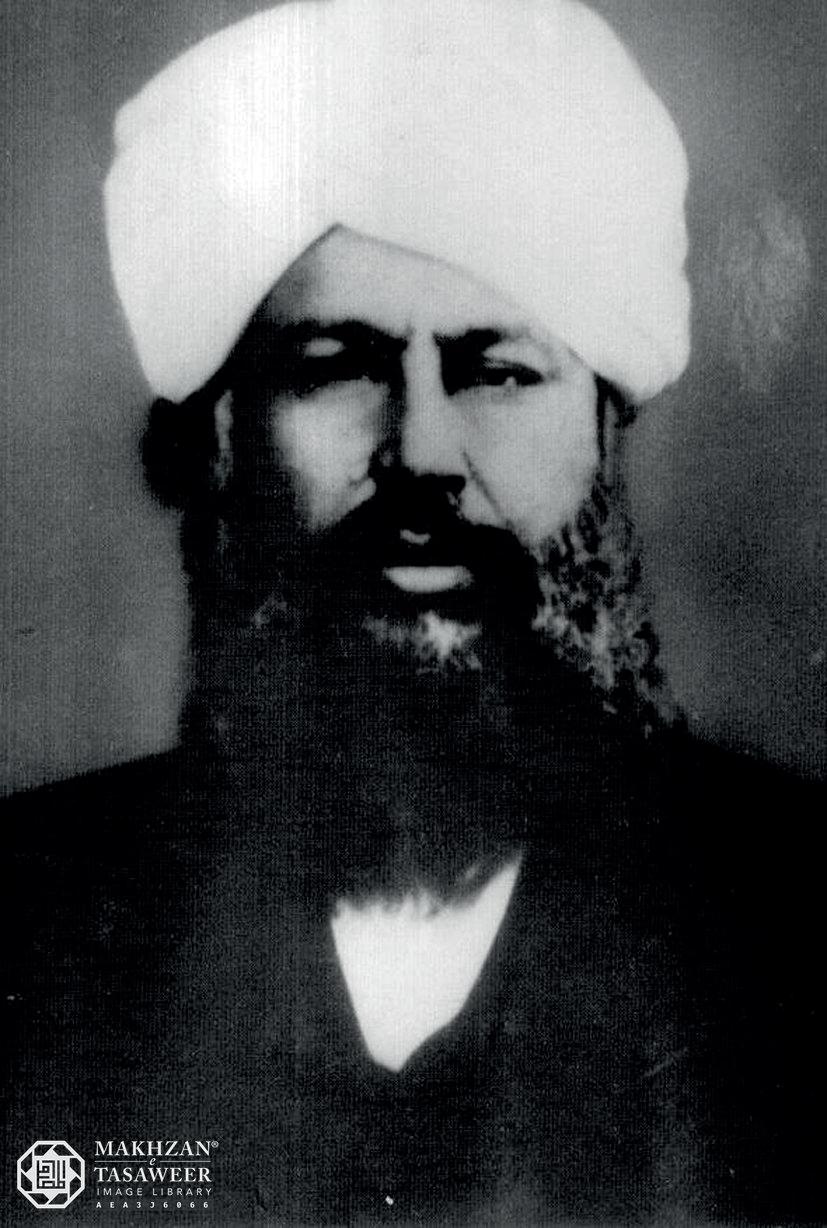
English translation of the above French passage:
“Port Louis. 15 March 1922.
“Sir, I have the honour to acknowledge the receipt of your letter with “the date of yesterday and thank you for that earnestly.
“It will be a very agreeable duty for me to apprise my government of the elevated sentiments of the Muslim community which you profess on their behalf.
“Hoping you will accept all assurances of my distinguished regards for you.
Sir, I am the Consul of France. (Signed)]”
(Translated by Al Hakam from the original Urdu, published in the 23 October 1922 issue of Al Fazl)
An interfaith event was hosted by the Saint Elizabeth Ann Seton Catholic Church in Lake Ridge, Virginia on 6 November 2022.
After a brief introduction to Jamaate-Ahmadiyya, my humble self presented the Islamic point of view of the purpose of existence and the responsibilities of mankind towards their Creator. In light of the teachings of the Holy Quran, I explained
that, as humans, our responsibility is to show obedience to God. The teachings of Islam on the afterlife are easy to understand and straightforward i.e. the afterlife is the reflection of our actions in this world.
I further said that one of the commandments of God was to worship Him but the act of worship is not limited only to visiting a church once a week or a mosque five times a day, but also being kind to one another, to your family, neighbours and the rest of the creation of God; that is
the essence of the obedience of God.
The lecture was well received and the audience asked different questions related to the teachings of Islam about the afterlife.
Three other faith leaders also spoke about life after death, including a Jewish Rabbi and a Rev. Father from Catholic Church.
At the end of the programme, my humble self presented The Philosophy of the Teachings of Islam to the speakers and organisers of the interfaith meeting.
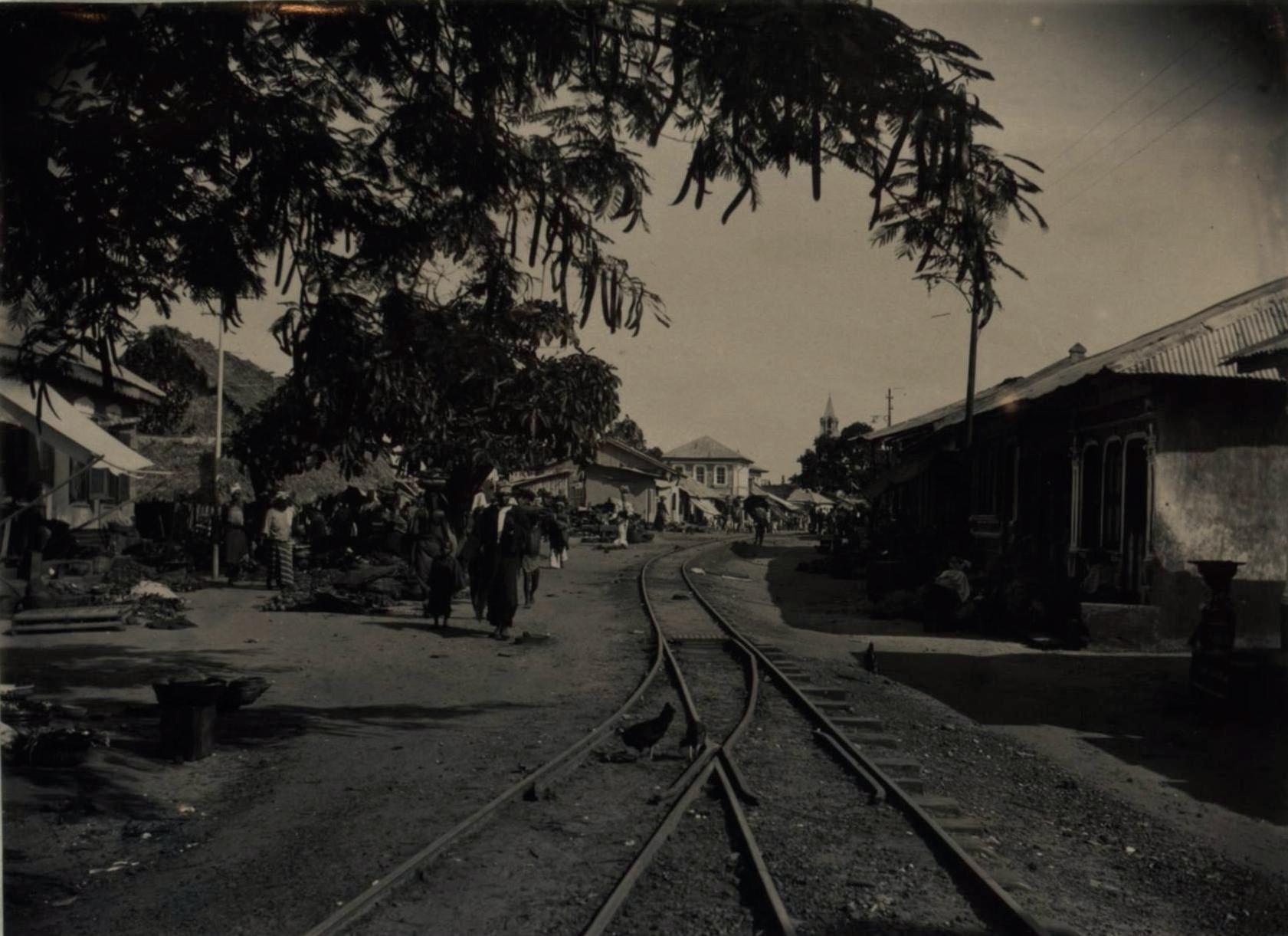 Hazrat Maulvi Abdur Rahim Nayyarra (1883-1948)
Hazrat Maulvi Abdur Rahim Nayyarra (1883-1948)
In this month, one of the most significant events was our Eid-ul-Adha which was celebrated on 4 August 1922. There is a lot of hue and cry in the city of Lagos during this event. The Muslim festivals here are particularly famous for their noise and all kinds of disturbance.
The grandeur with which the Ahmadiyya Jamaat celebrated its Eid was an example and a marvel for everyone, friends and foes alike. Around four hundred young men, in groups of two, wearing white uniforms and draped in flags, graced the long procession. Among them were professionals, high government officials, clerks, and luminaries of the prestigious families of Lagos (who are now common people but were previously nobles and chiefs). Behind them was the sceptre-bearer of the imam. The sceptre of the imam is covered with silver. He was followed by a devoted African imam called “Limamu Ahmadiyya” and an Indian with a green turban called “Ebu al-Ahmadiyya”, i.e. the master of Ahmadiyyat. Behind them, African alfas (clerics), tafseeri (teacher of the Quran), olori amakeo (head of students), amakeos (students of the Quran) were walking. Riders on horses accompanied the procession and the flagbearers and general
public were behind. Everyone was chanting the slogans of Allahu akbar, Allahu akbar, la ilaha illa-Allah wa Allahu akbar, wa Lillahi l-hamd in a very impactful voice.
They reached the Eid Gah in the form of a procession and went from there to the Jame‘ Masjid [central mosque] in the same manner. The Ahmadiyya Jamaat drew the attention of the non-Ahmadis and showed the Christians the splendour of Islam through this kind of demonstration for the first time. It had a significant impact on the people of the city, alhamdulillah
The issues related to Eid-ul-Adha were published in advance on a couple of pages. Moreover, it was announced that the Eid prayer will be held in the Eid Gah at ten o’clock and the sermon will be delivered at half past ten. Although my name was mentioned in the announcement, it was considered appropriate that imam Dabri deliver the sermon. Consequently, imam Dabri delivered the sermon at the Eid Gah and for the first time followed the traditions of the Ahmadiyya Jamaat. The summary of this sermon is as follows:
“It is through the blessings of Allah the Almighty that you witnessed the divine light. As prophesied, the alfa [cleric] came to teach the Holy Quran and brought the message of the Mahdi, who is the general
of the Messenger of Allah, Muhammadsa You should reform yourselves, because God does not like faith without action. You should purify your hearts. Unfortunate is the one who does not believe in the Mahdi, for all is darkness except him. You should sacrifice your desires. You do not give Zakat and are slow to spend in the way of God. You should leave negligence now and build a relationship of obedience with the government because Allah has sent the government as a protector for Ahmadis.”
I am grateful to Allah the Almighty that my hard work is yielding good results. Many young men are quitting alcohol and people of the city are secretly becoming Ahmadis. The youths are afraid of their parents, and the parents are scolding them that they should not convert to Ahmadiyyat. Every youngster in Lagos is an Ahmadi and Ahmadiyyat is talked about in every household. An old Christian priest asked a young man, “Are you an Ahmadi?” After receiving the answer in the affirmative, he said, “The Ahmadiyya Movement is the hope of our country.”
The same views are being strongly expressed in different sections of society. The general opposition is on the decline, but cases of individual cruelty are still ongoing.
The young Dawood is a tall gentleman from a good family. He is a clerk in the railways [department]. His father is a famous man but is ignorant. He is against his son because he prays for too long. Once, poor Dawood came to me crying and said:
“Tonight, at four o’clock my father started beating me during Tahajjud prayer. I remained silent after the first beating, but on the second time, due to the intensity of the pain, I could not control myself and left the house. I performed the prayer outside. My father says, ‘You offer long Ahmadi salat When you are performing individual prayer in the mosque, a man comes, finishes his prayer and leaves and another person comes and finishes his prayer and leaves, but you do not complete even one rak‘at during that time. Your alfa has taught you magic. Now that white man […] is your father and not me. I am giving you three days to leave my house.’”
“Father listen! I will leave your house but I will not leave Ahmad[as].”
This is just one incident among the daily hardships that the Lagos Ahmadi brothers have to endure, but these difficulties are the forerunners of the rewards.
In the days of the report under discussion, 16 people took bai‘at. The most prominent among them is a young man who is the son of a non-Ahmadi Deputy Chief Imam. Apart from him, another two highly educated and prestigious individuals are also included among the new converts. May Allah the Almighty grant all of them perseverance.
The missionary in charge in Dahomey, Maulvi Ismail Sheta, carried out a monthlong tour of the interior parts of the country and spread the message of Ahmadiyyat. The translation of his report will be published in a coming issue of Al Fazl. The present conditions are very promising. I have submitted a request to meet the Governor of French West Africa. The door to this path will also open, insha-Allah
Maulvi Fazlur Rehman Sahib has not been well for the past few days. He was suffering from a fever, but he remained busy with work. He regularly delivers dars from the Holy Quran and takes advantage of every opportunity to preach.
Maulvi Al-Hadi Egbaji, the missionary to Sierra Leone, could not do much work there due to bad health. However, he has now started to preach with great enthusiasm. May Allah the Almighty grant him the best of rewards.
Abdur Rahim Nayyar, 10 August 1922.
(Translated by Al Hakam from the original Urdu, published in the 12 October 1922 issue of Al Fazl)
there is a consensus that the Holy Quran has remained the same from beginning to end, as it was revealed to the Holy Prophetsa.” (Ibid, p. 8)
“The true meaning of Islam is for us to pledge that our pleasure will always be in acting upon the commandments of Allah the Almighty, and we will make the Holy Quran our constitution for life to attain His love and pleasure. [...] The true recipient of the title ‘Muslim’ will be the one who proves themselves eligible for this title by moulding their actions according to [the teachings of] Islam.
“For this very reason, we see that the Holy Quran has called the jamaats of Abrahamas, Noahas, Mosesas, and Jesusas ‘Muslims’, though they neither had the Quran with them nor had the Holy Prophetsa appeared. It means that true Islam means the spirit of obedience and submission.
“Once we inculcate within ourselves this spirit, we will become Muslims in the eyes of Allah the Almighty as well, and this was the distinction that was present amongst the companionsra of the Holy Prophetsa in its true essence. Since they had never bowed down to anyone except God and had devoted themselves to Him alone, every power in the world was worthless in their eyes. Therefore, this very spirit and passion are true Islam. [...] Islam is the name of that spirit and passion which enters one into the Kingdom of God and saves them from the slavery of every other being.
Ata-ul-Haye Nasir Al HakamOn 30 August 1953, Jamaat-e-Ahmadiyya Karachi organised a reception in honour of Hazrat Mirza Bashiruddin Mahmud Ahmad, al-Musleh-e-Maudra, at the Beach Luxury Hotel in Karachi. The reception was also attended by various non-Ahmadi dignitaries.

Huzoorra delivered the keynote address, titled “Haqiqi Islam” – True Islam.
In the beginning, Huzoorra said that though Islam was the name of the religion brought by the Holy Prophet Muhammadsa and his followers were called Muslims, the Holy Quran also mentioned the other prophets and their followers as ‘Muslims’:
“The fact that the Holy Quran has called them Muslims indicates there are two meanings of Islam; firstly, every follower of the Holy Prophetsa is a Muslim and secondly, everyone who exhibits submission and obedience is also a Muslim. Therefore, in light of the latter meaning of the word Muslim, anyone who obeyed and submitted to Adamas, Noahas, Abrahamas, Mosesas, and
Jesusas was, in fact, a Muslim.” (Daily alMusleh of Karachi, 1 September 1953, p. 1)
Huzoorra said:
“We are Muslims because the followers of the Holy Prophetsa have been granted the title of Muslims; at the same time, we are Muslims concerning the spirit of obedience and submission as well, which has always been a distinctive feature of the followers of every prophet. [...]
“The title of Muslims – which has been granted to us by God Almighty – demands from us that we inculcate within ourselves those attributes that suit this title. This title indicates that God will surely grant great ranks to the followers of Muhammadsa, provided they strive to stay firm on high levels of obedience and submission to leap forward and attain religious and worldly progress.
“Therefore, the true meaning of Islam is that one should instil the spirit of submission and obedience to Allah the Almighty’s commandments in such a manner that it becomes impossible for them to take even a single step against His Will. May we not merely be called Muslims by name, rather
our actions and character should testify to the fact that we are deserving of this title, and may each of our steps and actions become befitting of this.” (Ibid)
Huzoorra continued:
“God Almighty wanted to establish such an ummah in this world through the Holy Prophetsa, which was to bear a name that also reflected its qualities and whose actions and character aptly suited its title of ‘Muslim’. For this reason, He also provided the means for spiritual progress to this ummah, which was never granted to any ummah in the past. Therefore, in addition to granting the most perfect sharia [the Holy Quran], God Almighty also created means for its protection and to make its teachings everlasting.” (Ibid)
Huzoorra said that Allah the Almighty had fulfilled His promise to protect the Holy Quran in an amazing manner:
“There is no doubt there are some Muslims who wrongly believe in the abrogation of a few verses, however, there is not a single sect of the Muslims who believe that – God forbid – some verses of the Holy Quran had been included later. Moreover,
“If this is not the case, then how can the followers of Abrahamas be called Muslims, and similarly, how can the sincere followers of Mosesas and Jesusas be called Muslims? Therefore, in reality, the attainment of the title ‘Muslim’ depends on us becoming the true servants of God.
“Once a community inculcates this passion within themselves, no power of the world can ever defeat them, since anyone who tries to defeat such a community, in fact, attempts to defeat God [God forbid], and this is an act which is equivalent to causing self-destruction.” (Ibid)
After narrating the faith-inspiring incidents of the Holy Prophet’ssa companionsra, which exhibited their devotion to God Almighty, Huzoorra said:
“No doubt, God has granted you the title of Muslims, however, this in itself is not an achievement for you since the true achievement is for you to become a true Muslims concerning your actions and character by instilling within yourselves the true [teachings of] Islam. [...]
“Once a person inculcates the true Islam within their heart [...] they attain such a high rank of certainty that even if they are cut into pieces, they will never let the impression of God’s love efface from their hearts. Therefore, the real objective is to adopt [the teachings of] Islam.” (Ibid)
On 12 November 2022, around 100 members of Jamaat-e-Ahmadiyya France gathered at the Mubarak Mosque in Saint-Prix to participate in discussions with veterans on “Patriotism and the Duty of Remembrance”.
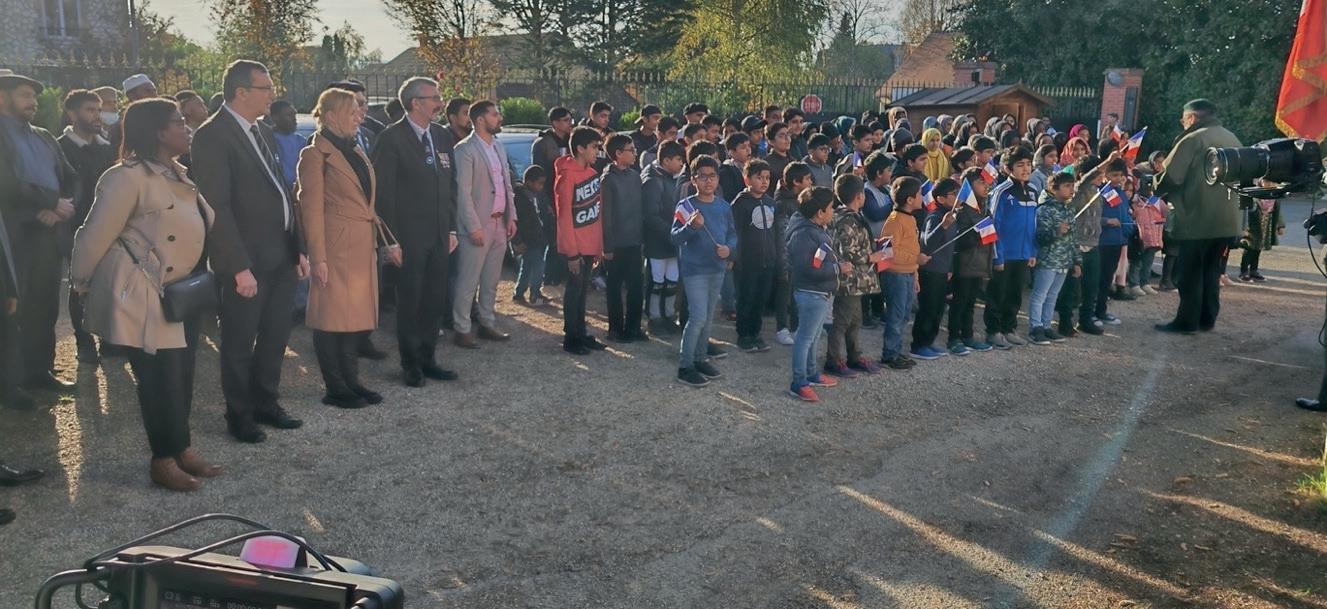
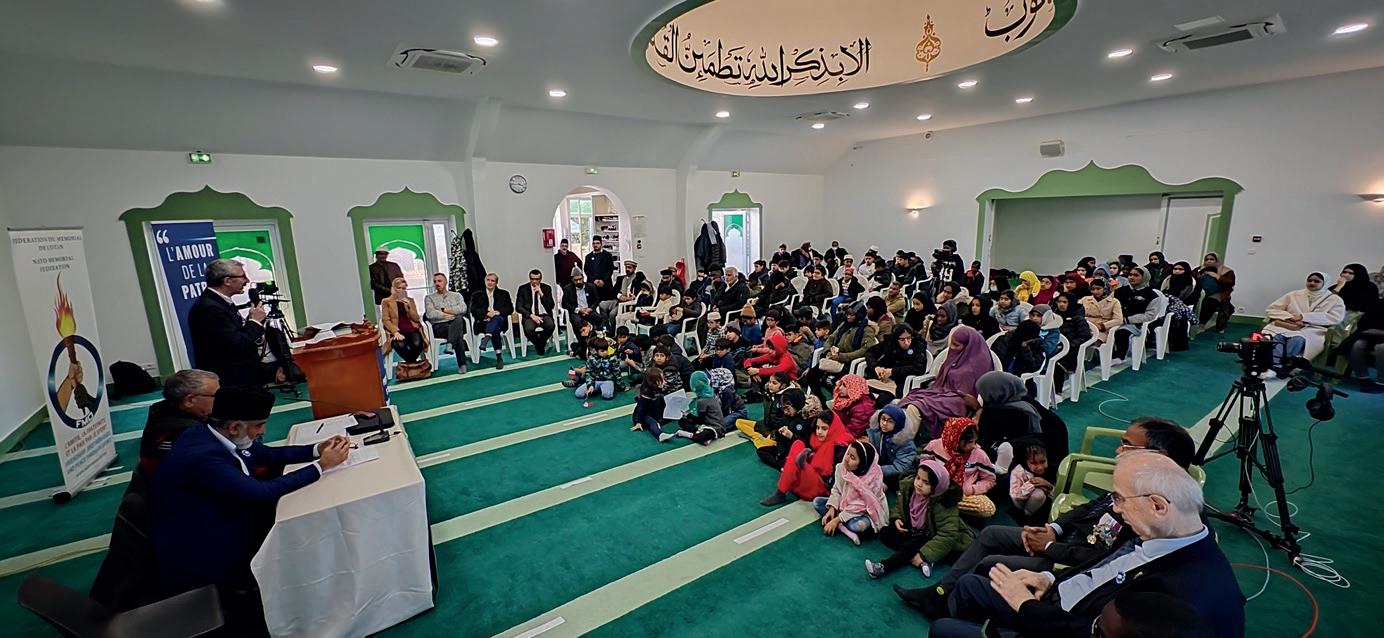
The discussions were preceded by a ceremony of homage to those who sacrificed their lives for the country, during which children and young people wore the bleuet de France and waved the tricolour flag. The tribute was followed by a minute’s silence, a Marseillaise recited in chorus by all the children and the anthem of the NATO Memorial Foundation.
The Deputy Mayor of Saint-Prix, Mr Christophe Sefrin, and several members of different municipal councils of neighbouring towns were present to attend these discussions and speeches.
The programme started with the
recitation from the Holy Quran, followed by a welcome speech by the missionary-incharge, Naseer Ahmad Shahid Sahib, who emphasised the importance given in Islam to patriotism and service to one’s country.
These exchanges were moderated by Willy Breton, President of the NATO Memorial Foundation and Jean-Marc Leclerc, President of the Union Nationale des Combattants du Val d’Oise, both are veterans.
During his speech, Willy Breton shared what motivated him 10 years ago to work to build a NATO Memorial. The idea came to him to create a memorial dedicated to the memory of the soldiers (military, police and gendarmes) who had sacrificed their lives in the service of NATO and he decided to offer it to them.
Jean-Marc Leclerc shared with the children the importance of the duty of remembrance; remembering those who died for our country. He went back over the
definition of patriotism, what it means to be French, and the symbols of the republic such as the flag, the French motto, and the Marseillaise. He also shared with the children the history of different wars and why it was important to remember them, and he concluded his speech with the story of foreigners who sacrificed their lives for our country.
The children had the opportunity to ask many questions of the speakers.
Amir Jamaat-e-Ahmadiyya France delivered the concluding speech, followed by a silent prayer.
Following the closure of the discussions, the children and young people gathered around the speakers to ask any further questions they had.
Willy Breton, a veteran and President of the NATO Memorial Foundation, said:
“I am very happy to have participated because I was speaking to young people who are French and who will perhaps be future
reservists, soldiers and therefore brothers in arms of another Frenchman in a theatre of operation, where they will also be together to protect our freedom and peace.
“The notion of the fatherland does not stop at a colour, a religion or a social rank, but I felt that these young people were really invested in this subject that you have set up today and it was very important for them and their questions were diverse, I was frankly astonished and we feel that this generation is interested in the notion of the fatherland. They are the ones who will make our future, who will make France.
“I am very happy. It was a first for me (in a mosque) because we are used to going to certain places to evoke the duty of remembrance and I am very happy to participate on this day today and when I was asked to come here, I signed with both hands. Thank you very much.”
Jean-Marc Leclerc, a veteran and President of the Union Nationale des Combattants (UNC) du Val d’Oise, said:
“I would like to thank the association for its exceptional welcome, I did not expect this. The highlight of the day was when the young people sang the Marseillaise, which touched me enormously, I saw that everyone knew the words. Every time I hear it, I get chills, but that touched me enormously, and then, in the mosque of the association, to come and talk about the duty of remembrance, among other things, the role of the Indian army in different wars, the place was a bit magical with something supernatural.
“It’s true that we rarely talk about the duty of remembrance in a place of worship, so the fact that it was in the mosque also touched me enormously. The welcome was exceptional. What surprised me was the thanks, I did not expect to be thanked so much, and the kindness. Being French is easy, it’s loving France and you prove it. Unfortunately, the Muslim religion is not well known in France, the French should perhaps look a little more into your religion, which is also similar to the Christian religion, we have the same God and we have many prophets in common.”
Marie-Hélène Lepage, Secretary General of the NATO Memorial Foundation, expressed:
“I really liked the children’s questions, which were simple and natural. [...] It was a nice exchange, as usual and it is not the first time I have come (to one of your events). Thank you very much for the invitation.”
Goulam Djany, a veteran and a member of the UNC of Val d’Oise, said:
“I really liked the attention that the children paid throughout this programme, throughout the intervention of each person, the listening they had and the curiosity they had. I really liked that and the way the children asked questions about the values of France and the flag and about the First World War. Unfortunately, when we see at sports events or elsewhere the Marseillaise is not sung by the people, so today when I saw that Muslim children were singing the Marseillaise in a mosque, I was very moved, frankly, I tell you sincerely that at this age the children sang the Marseillaise by heart and without a mistake, this is a point that must be emphasised.”
David, a member of Heavenly Culture,
‘I was very moved to see Muslim children sing the Marseillaise in a mosque.’: French Ahmadi Muslims hold remembrance day
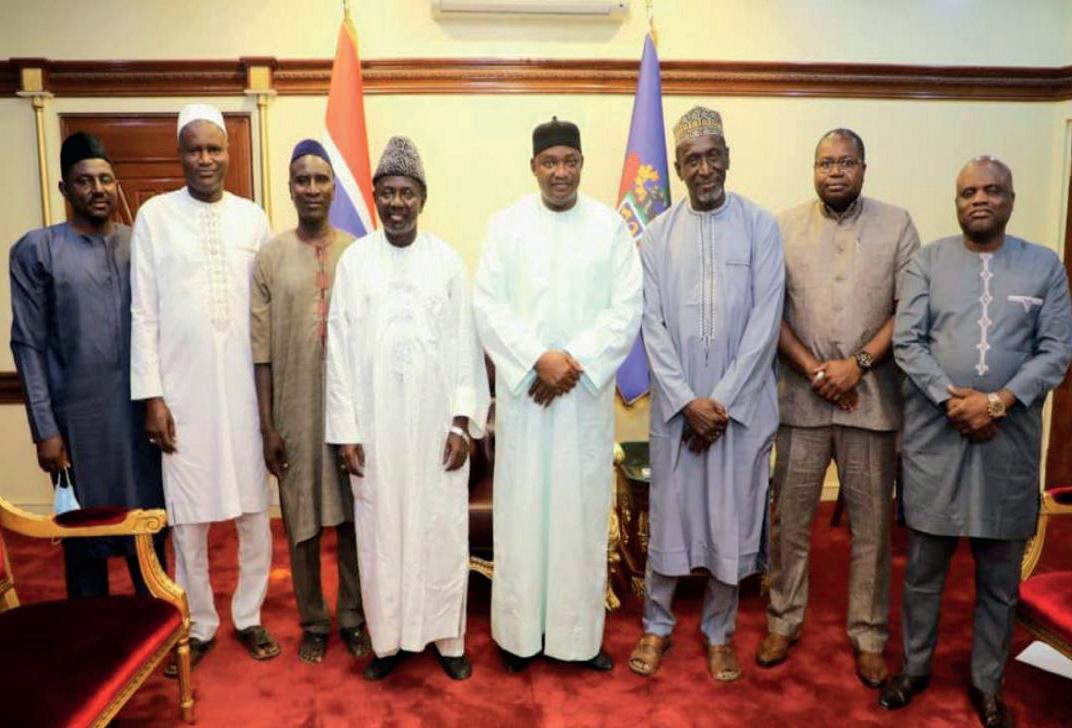
A delegation of Jamaat-e-Ahmadiyya the Gambia – led by Baba F Trawally Sahib, Amir Jamaat the Gambia – had a meeting with the President of the Republic of The Gambia on 14 November 2022. The news released by the government was broadcast and printed by the state media, radio and other media outlets as produced below:
News Dispatch (14 November 2022):
“President Barrow Extols Ahmadiyya Jamaat for Remarkable Service to The Gambia
“His Excellency, President Adama Barrow has extolled the Ahmadiyya Muslim Jamaat for ‘their remarkable Service to The Gambia and humanity.’
“During an audience with the Jamaat’s Gambian Amir, Mr Baba F. Trawally and a delegation of Ahmadi experts across various disciplines at State House on Wednesday, President Barrow expressed gratitude to the Ahmadiyya for their quality services to the nation, especially, in the fields of health and education. President Barrow told the Amir that Nusrat High School speaks volumes to the Jamaat’s significant contribution to Gambian education and as a school of excellence and discipline, Nusrat continues to be an inspiration to Gambian students and their parents.
“He recognised the Ahmadiyya Muslim Hospital in Tallinding as relatively affordable with a highly disciplined team of medics rendering high-quality medical services to the sick.
“While assuring them of his government’s full support for their development projects, President Barrow informed Amir Trawally and delegation that he has assigned the Agriculture Ministry to map out viable rice production sites across the country to be fully developed by both the state and genuine investors.
“President Barrow lamented the occupational imbalances in the informal sectors of the country and emphasised the need for technical skill centres in every region to close the gap on foreign domination in areas like fishing, carpentry, auto-mechanics and the retail and wholesale business. He reiterated the need to train our
people to change the status quo. The Jamaat, he noted is a serious and well-organized institution with the capacity to deliver on these projects. The President of the Republic strongly encouraged religious tolerance, understanding and unity for the success and progress of The Gambia.
First, The Gambia, is currently drilling 20 boreholes for domestic needs nationwide and 20 more will be drilled in rural areas where access to portable drinking water remains elusive. A Modern Village pilot project in Sari Malang, CRR on renewable energy, water and solar PVC systems for lighting in homes and streets will be replicated in other parts of The Gambia. Murreh Kunda in the Upper River Region (URR), Wuli East and its two neighbouring communities, will benefit from the expansion of the modern village project, he disclosed.
“He announced that the Jamaat is currently working with Humanity First, UK to build a state-of-the-art referral hospital in the West Coast Region. The Amir craved the President’s support in the allocation of land for the construction of the said hospital.
“On dental surgery at the Ahmadiyya Hospital, the Amir stated that in less than two weeks, no one should travel to Senegal for dental treatment as the latest machines for dental surgery and implants are being installed.
World Peace, Restoration of Light (HWPL) expressed:
“I was already surprised at first to see so many veterans and to see so many children who were interested, who even had questions. It just impressed me to see that young people were asking questions like, ‘Why was France founded?’ and ‘Why is the flag blue white and red?’ [...] You could say that these children might only think of having the latest toy, but in fact, they have interests, they are interested in this country and that is what I found really magnificent.
“I did not expect this at all, already when I came back, I was very surprised to see the big flags and I found it really, really good. I really encourage you to continue in this direction with the peace work you are doing because I did not expect it at all in a mosque and I have never seen this in a mosque and I’ve never heard about it before so it was really good what you are doing.”
Grégoire Dublineau, former mayor of Eaubonne, said:
“I was impressed by the quality of the speakers and by the interest of the young people, but also, once again, by the quality of your organisation. It was a beautiful exchange, rich in meaning and full of hope and peace. Congratulations to the whole community.”
Jean-Pierre Enjalbert, member of the municipal council and former mayor of Saint-Prix, expressed:
“Thank you for your invitation. I was delighted to attend this moment of exchange with curious and attentive children. The veterans were right to insist on the need to glorify the memory of each of our ancestors.”
This event is only the first of a long series of events that Jamaat-e-Ahmadiyya France will organise throughout the year, insha-Allah, in order to make our children aware of the duty of remembrance and the importance Islam gives to patriotism and service to our country.
“Speaking earlier to update the Gambian leader and seek his endorsement for a list of new projects, Amir Trawally praised Allah for the meeting with President Barrow and congratulated the Gambian leader on his December presidential election victory that was conducted peacefully. He observed that The Gambia is progressing successfully, but the government cannot do it all. The Jamaat will continue to work with the government in the health, education and agriculture sectors and render other humanitarian needs, the Amir said.
“Reporting on major projects that the Jamaat intends to carry out, the Amir mentioned the construction of an International Technical College to be situated in Lower Niumi District, North Bank Region and an agricultural “Food Basket Programme for Africa” led by the International Association of Ahmadi Architects and Engineers (IAAAE). ‘The Africa Food Basket Project’ is geared towards rice production to feed the population and potentially export it to Europe, which is the wish of their Supreme Leader, the Khalifa.
“Amir Trawally requests the government’s support in the acquisition of land, measuring some 25-30 hectares for the venture, preferably in Jangjangbureh, Central River Region (CRR). He revealed that both local and international experts will collaborate in the realis ation of the project.
“Amir Trawally also said that Humanity
“Amir Trawally argued that peace is the foundation of everything and the Jamaat will support the country in maintaining peace and its members will continue to be law-abiding and peaceful citizens.
“Mr Ebrima G. Sankareh, the government spokesperson who led the delegation to State House, highlighted the urgency of the proposed ‘Africa Food Basket Project’ as well as the International Technical College, which he reasoned, will significantly alleviate our dependency on imported rice and improve skills development among Gambian youth.
“Other speakers included the Third Deputy Amir, Ibrahima Jam Jawo, Education Secretary, Alhagie Bah, Humanity First Gambia Branch Chairman, Kawsu Kinteh and Agriculture Secretary Ebrima Sosseh Colley”.
Amir Sahib Jamaat-e-Ahmadiyya The Gambia presented to the President various Jamaat literature, including the Mandinka, Wolof, Pullar, and English translations of the Holy Quran, The Philosophy of the Teachings of Islam, World Crisis and the Pathway to Peace (English and translations in Mandinka, Wolof and Pullar), Islam’s Response to Contemporary Issues, Salat Muslim Prayer Book, Yassarnal Quran, Ahmadiyya Muslim Beliefs, and The Review of Religions
Amir Sahib Jamaat The Gambia, naib amir sahib, and missionary-in-charge also visited the Minister of Work, Transport and Infrastructure and the Minister of Information, both of whom appreciated the great social services the Jamaat is rendering to the Gambia.
Pessimistic people tend to define people by one or two bad qualities. But an optimistic person looks at a shortcoming and separates that flaw from the rest of that person’s character. Positive thinkers can look at a road rage incident and say: “This person is just having a bad day.” But a negative thinker will view such a person as deeply “flawed.”
inclinations that lead us astray.
But how do we refrain from such evils? How do we deal with everyday temptations that beckon us to leave God and His threshold? How do we purify ourselves so that we can draw closer to God and win His pleasure?
Munir USAWe have always heard our thoughts shape who we are. What we think and how we think determine most of our actions.
This is the reason Islam is so emphatic about purifying one’s thoughts. If our minds are full of ill thinking and negativity, we are most likely to end up depressed or have a pessimistic view of life. Worse, we become our own enemies and view others as despicable and lowly.
Allah the Almighty says in the Quran, “O ye who believe! avoid most of suspicions.” (Surah al-Hujurat, Ch.49: V.13).
Researchers studying positive psychology agree that being more optimistic has many benefits. And what is fascinating is that Islam is directly aligned with these philosophies.
Let’s take a deeper look into how positive thinking or optimism has not only physical and mental health benefits but also spiritual benefits.
Positive people have more selfcompassion
What is self-compassion? It’s the ability to forgive yourself and get back up after you make mistakes. The more optimistic we are, the easier it becomes for us to move past our mistakes and keep marching forward.
Allah declares to the Prophetsa, “Tell My servants that I am surely the One Most Forgiving, the Merciful;” (Surah al-Hijr, Ch.15: V.50)
In the Holy Quran, there is a repeated emphasis on mercy and kindness. Even in verses where believers are commanded to take arms against disbelievers who are oppressing and fighting the Muslims, Allah is quick to admonish that no transgression will be allowed and forgiveness will always be granted to those who seek it. (Surah anNisa, Ch.4: V.90-91)
This is why it is so important to believe in
Allah’s mercy and think of Him in a positive light. Yes, we will make mistakes, but we can learn from them and move on.
Famous psychologist, Martin Seligman, speaks of this in his book Learned Optimism He says that people whose religious beliefs are more optimistic tend to fare better when facing adversities.
There is a beautiful hadith that speaks of Allah’s mercy and gives believers hope:
This is why it is so important for us to train our brains to think more positively. Doing this not only helps us lead happier lives but also makes us better people.
Optimistic people are more resilient
It takes courage to live as a Muslim in the Western world. We face relentless criticism and scrutiny for our beliefs. Muslim women who wear the hijab face challenges in schools and workplaces. In short, we have to work hard to defend our faith and hold onto our values.
Optimistic people are more resilient. When they face adversity, they do not give up easily. They look at challenges and realise that perseverance is key. This is why believers are commanded to not give up on praying.
Allah the Almighty says:
“Slacken not, nor grieve; and you shall certainly have the upper hand, if you are believers.” (Surah Aal-e-Imran, Ch.3: V.140) Positive psychology has numerous spiritual benefits. It doesn’t end with the few I have mentioned in this article. It is important to realise that we are all imperfect but Islam offers hope. There is no other religion that has offered more profound and insightful ways to deal with human imperfections. We are told to refrain from anger, ill will, resentments and other
I believe that if we want spiritual progress, we must be willing to fix our psychology. When we deal with imperfection and are helpless in defeating our inner selves, we are dealing with illnesses of the mind.
In many cultures, mental health is a taboo topic. People avoid it or look down on others who might be dealing with an “ailment” that they don’t understand. But Islam is a faith that looks upon everyone equally. It reminds us that all of us are flawed and there are ways we can fix ourselves. This is why it is incumbent on Muslims to gain knowledge and strive for knowledge as much as they can.
Knowledge is power when it comes to defeating our inner demons. Having selfawareness is important in confronting these demons and recognising them. Psychology is big on this: self-awareness. Islam also teaches us to do istighfar; to recognise our flaws and beg for forgiveness.
The Promised Messiahas reminds us:
“Do not lose hope and do not be discouraged by the thought: ‘Our souls are so defiled with sin; of what value are our supplications and what impact would they have?’ The human soul has, in fact, been created for the love of God and although the fire of sin may intensely excite him, even then he possesses such power of repentance that it can extinguish that fire. Just as you observe that however much water is heated, when it is poured over a fire it still extinguishes the fire.” (Barahin-eAhmadiyya Part V [English], p. 52)
“By Him in Whose Hand is my life, if you were not to commit sin, Allah would sweep you out of existence and He would replace [you by] those people who would commit sin and seek forgiveness from Allah, and He would pardon them.” (Sahih Muslim, The Book of Repentance, hadith2749)
If we learn to forgive ourselves, we are more likely to forgive others for their shortcomings as well. We become humble when we make mistakes and when we see others making similar mistakes, we are reminded of our own flaws. Believing that Allah can forgive us and have mercy on us, despite our shortcomings, can have a tremendous impact on our physical, mental and moral well-being.



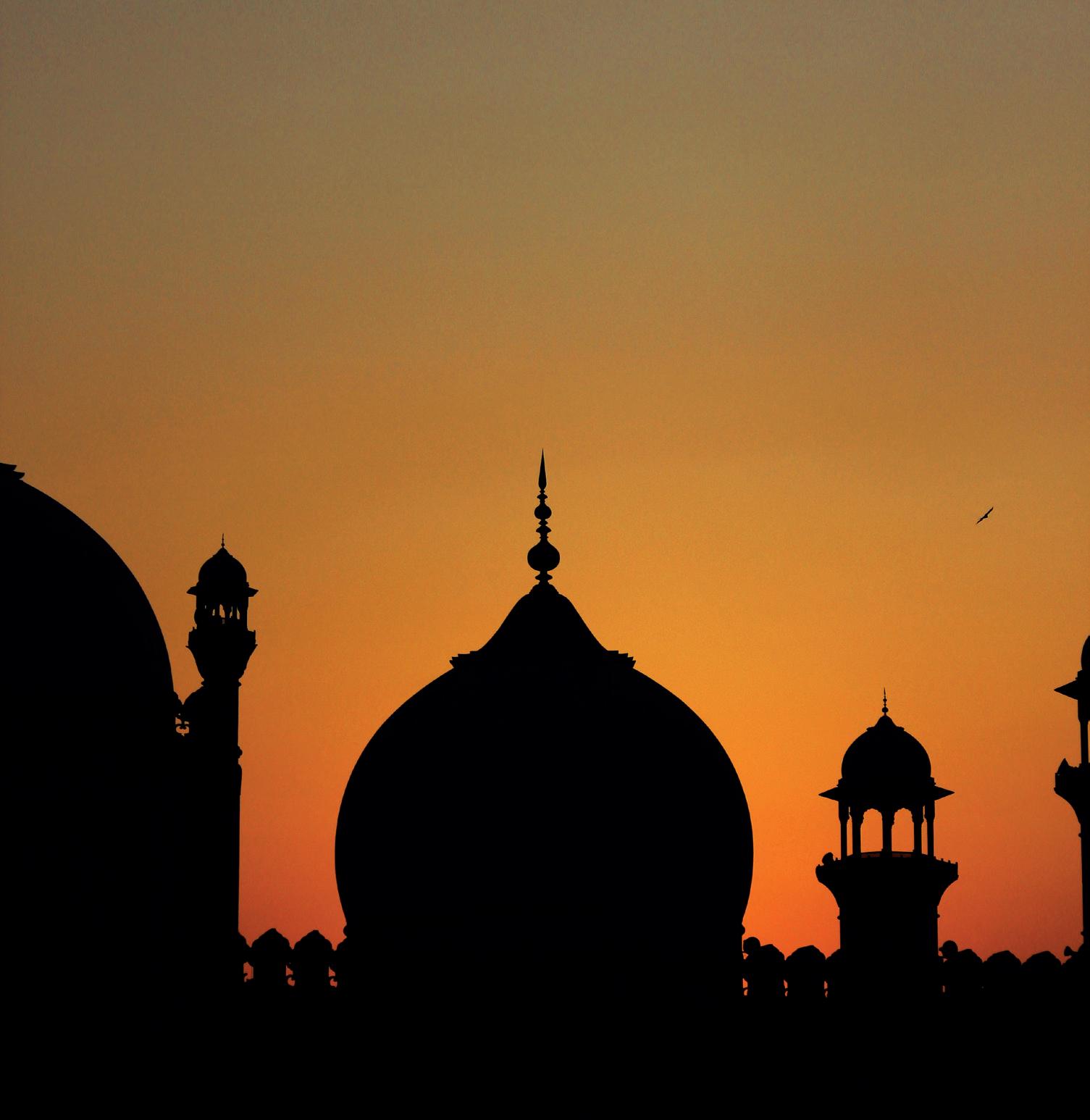
Positive people give others the benefit of the doubt
Allah commands us to “avoid suspicion” (Surah al-Hujurat, Ch.49: V.13) and in the same verse, Allah says backbiting and deriding one another is a form of arrogance. To look down on one’s brothers and sisters creates a false sense of superiority.
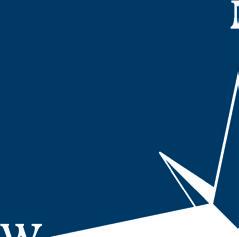
According to psychologists, optimistic people give others the benefit of the doubt. Even when someone says or does something hurtful, optimistic people tend to think of others in a more positive light.
Most of us deal with hurtful comments from people we know or even strangers.
cooked and tinned food and other essentials to their food bank many times and said she was looking forward to making this partnership stronger.
Cllr Gillian Renwick, the Provost of East Dunbartonshire Council, attended our Jamaat event for the first time, met with many members at the event and welcomed us into her council. She spoke about the current global unrest and its solution, which is promoting peace in our society.
Hon Rona Mackay, MSP for Strathkelvin and Bearsden Constituency, said:
“I am proud to be anti-war and condemn the Ukraine invasion. I always raise my voice in every forum and appreciate the efforts being taken by the Ahmadiyya Muslim Community. I already attended one Peace Conference organised by the Ahmadiyya Muslim Community Scotland, where I took this positive message.”
Humayon Jahangeer Khan Sahib, a missionary of the Ahmadiyya Muslim Community Glasgow, delivered the address and said that as an Ahmadi Muslim, love for humanity is a vital part of our faith which is clear through our community’s slogan, “Love for all, hatred for none.” He said:
Arshad Mehmood Khan Scotland CorrespondentMajlis Ansarullah Glasgow held its “Peace Forum” in Kirkintilloch, Scotland, on 6 November 2022. More than 25 guests attended the event and received literature from our bookstall, which was set up in the hall. The guests also met with many Jamaat members and exchanged contact details; they further promised to attend our future events.
There were representatives from the Scottish Parliament, the Church of Scot-
land, local council, the Rotary Club of Scotland and a local charity who all shared their thoughts at the event on the topic of peace and what actions they are taking towards achieving it.
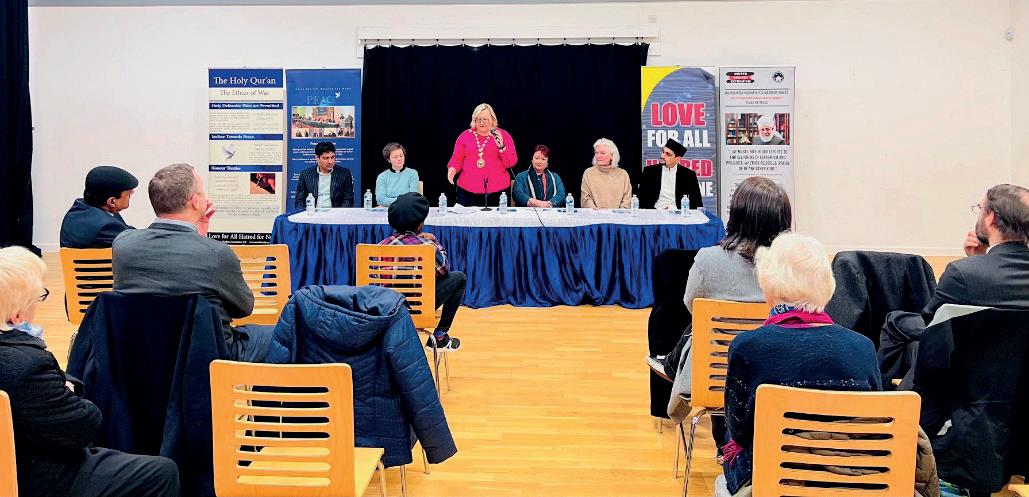
The programme started at 3 pm with the recitation of the Holy Quran with English translation, followed by introductory words by Ahmad Owusu Konadu Sahib about Islam Ahmadiyyat and Khilafat. He welcomed all guest speakers of other faiths and elaborated on the current issues relating to the world crisis and the pathway to peace.
Further to this, the solutions that Hazrat Khalifatul Masih Vaa has given on many global platforms were also highlighted.
Deborah Carmichael, President of the Rotary Club of Scotland, said she was inspired a lot to learn about the Ahmadiyya Muslim community doing so much to triumph in peace and harmony and Hazrat Khalifatul Masih Vaa addressing this topic many times.
Shulamite Ezechi, from the Anyiso Charity organisation in Glasgow, thanked Majlis Ansarullah Glasgow for donating


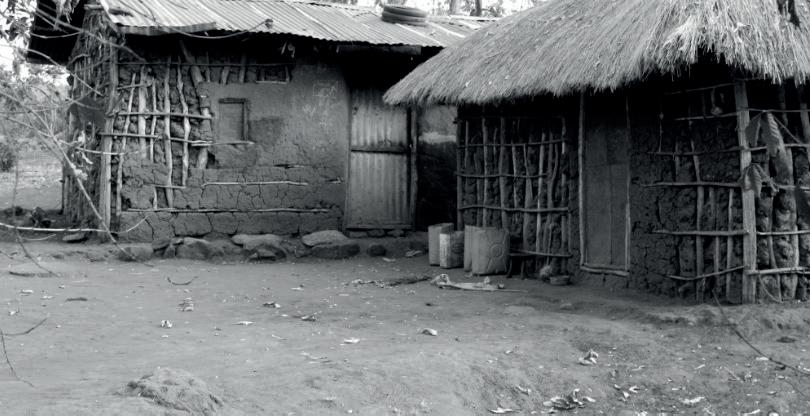







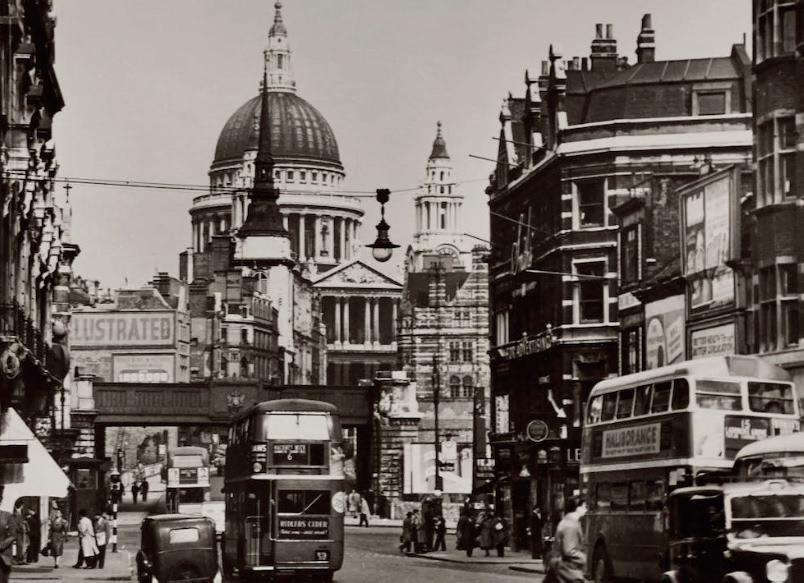
“Ever since our community was established in the UK in 1913, we have received nothing short of respect and love from our nation – which, no doubt, has been reciprocated ever since, through our community work.”
Wassem Ahmad Goraya Sahib, Zaeem Majlis Ansarullah Glasgow gave a vote of thanks and said his team worked hard to make this event a success on short notice. He thanked all speakers and attendees at this peace forum and pledged to work closely with local councils and charities for humanitarian support, especially for Ukrainian refugees and other needy people.
Mubarak Mosque, Islamabad, UK, 28 October 2022
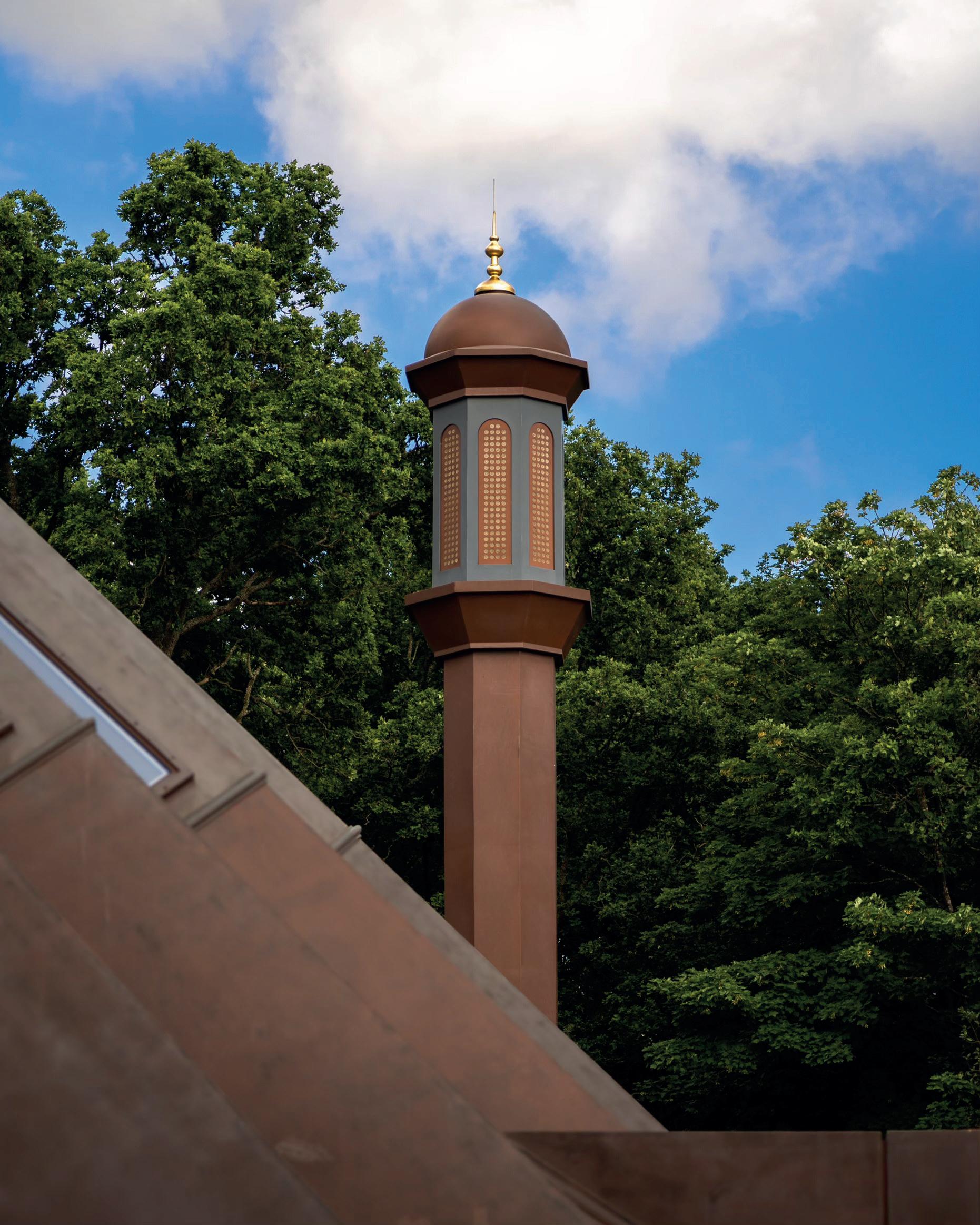
After reciting the tashahud, ta’awuz and Surah al-Fatihah, Hazrat Khalifatul Masih Vaa stated:
In relation to the Badri companions, the accounts from the life of Hazrat Abu Bakr Siddiqra were being narrated.
There are certain narrations of the Holy Prophetsa in relation to the status and rank of Hazrat Abu Bakr Siddiqra
Hazrat Abu Bakr Siddiqra has the blessings and distinct honour that during the Meccan period, the Holy Prophetsa would visit his house every day once or twice. (Sahih al-Bukhari, Kitab Manaqib alAnsar, Bab Hijrat al-Nabisa…, Hadith 3905)
Hazrat Amrra bin al-Aas narrates, “The Holy Prophetsa appointed me as the commander-in-chief of the Dhat al-Salasil army. I presented myself before the Holy Prophetsa and submitted, ‘Who is most beloved to you among the people?’ The Holy Prophetsa replied, ‘Aisha’, I then asked, ‘Who is most beloved to you amongst the men?’ and the Holy Prophetsa replied, ‘her father.’ I then asked, ‘Who is most beloved to you after him?’ and the Holy Prophetsa replied, ‘Umar bin al-Khattab’ and in this manner the Holy Prophetsa included a few other people among them.” (Sahih al-Bukhari, Kitab Fada’il Ashab al-Nabisa, Bab Qaul alNabisa Lau Kunta Muttakhidhan Khalil…, Hadith 3662)
Hazrat Salamahra bin Akwa’ relates that the Holy Prophetsa stated, “Abu Bakr is the most excellent and lofty amongst the people, except if there is a prophet.” (Kanz al-‘Ummal, Vol. 6, Ch. 11, Fada’il Abi Bakr al-Siddiqra, Hadith 32548, Dar al-Kutub alIlmiyyah, Beirut, 2004)
Hazrat Anasra bin Malik relates that the Holy Prophetsa stated, “The most benevolent and merciful towards my people is Abu Bakr.” (Jami’ at-Tirmidhi, Abwab alManaqib, Bab Manaqib Mu’adh bin Jabal, Hadith 3790)
Hazrat Abu Sa’eedra relates that the Holy Prophetsa stated, “Those of a lofty rank will be seen by those who occupy a lesser rank as if they are stars that appear [on the horizon].”
In other words, those who possess a high rank will be seen by those who are of a lesser rank as if they are looking at stars that appear on the horizon.
[The Holy Prophetsa further stated] “and Abu Bakr and Umar are among them.”
They hold such a high rank that people will look at them just like one looks up at the stars high up in the skies. The Holy Prophetsa then stated, “How excellent are
both of them!” (Jami’ at-Tirmidhi, Abwab al-Manaqib, Bab Manaqib Abi Bakrra, Hadith 3658)
Hazrat Abu Hurairahra relates that the Holy Prophetsa stated, “There is no one to whom I have not repaid any act of kindness they have done to me, except for Abu Bakr. His acts of kindness towards me shall be rewarded by Allah the Almighty on the Day of Judgment.” (Jami’ at-Tirmidhi, Abwab alManaqib, Bab Manaqib Abi Bakrra, Hadith 3661)
During his final illness, the Holy Prophetsa stated, “There is no one amongst the people who has extended their kind treatment towards me with their life and wealth as much as Abu Bakr bin Quhafah has done. If I were to make someone a Khalil [close friend] from among the people, then I most certainly would have made Abu Bakr my Khalil. However, the bond and friendship in Islam is more superior. Close all the windows in this mosque except for the window of Abu Bakr.” (Sahih alBukhari, Kitab al-Salah, Bab al-Khaukhah al-Mumirr fi al-Masjid, Hadith 467)
This is a narration from Sahih alBukhari
The Holy Prophetsa also stated, “Abu Bakr is from me and I am from Abu Bakr. Abu Bakr is my brother in this world and in the hereafter.” (Kanz al-‘Ummal, Vol. 6, Ch. 11, Fada’il Abi Bakr al-Siddiqra, Hadith 32547, Dar al-Kutub al-Ilmiyyah, Beirut, 2004)
There is a narration in Sunan al-Tirmidhi in which Hazrat Anasra relates that regarding Hazrat Abu Bakrra and Hazrat Umarra, the Holy Prophetsa stated, “They are both the chiefs of the first ones and the last ones amongst the elders of Paradise, with the exception of the Prophets and Messengers. O Ali, do not tell them this.” The narrator states that when the Holy Prophetsa said this, he instructed Hazrat Alira not to tell them.
Hazrat Anasra relates that the Holy Prophetsa would come outside and sit amongst the Ansar and Muhajir companions and Hazrat Abu Bakrra and Hazrat Umarra would also be present. None of the companions would raise their glances towards the Holy Prophetsa, except for Hazrat Abu Bakrra and Hazrat Umarra They would both look at the Holy Prophetsa and the Holy Prophetsa would look back at them. They would both smile and the Holy Prophetsa would also smile in return. (Jami’ at-Tirmidhi, Abwab al-Manaqib, Bab Manaqib Abi Bakrra, Hadith 3668)
Hazrat Ibn Umarra narrates that the Holy Prophetsa stated to Hazrat Abu Bakrra, “You are my companion in Paradise and in the cave.” (Jami’ at-Tirmidhi, Abwab alManaqib, Bab Manaqib Abi Bakrra, Hadith 3670)
Hazrat Jubairra bin Mut’im relates that a woman once came to the Holy Prophetsa and spoke about a particular matter and the Holy Prophetsa gave an instruction in relation to it. She then submitted, “O Messengersa of Allah! What are your thoughts if I am unable to meet you?” (In other words, if she was in need of something again and the Holy Prophetsa had passed away). The Holy Prophetsa stated, “If you do not find me, then go to Abu Bakr.” (Jami’ at-Tirmidhi, Abwab al-Manaqib, Bab Manaqib Abi Bakrra, Hadith 3676). He shall fulfil your needs.
Hazrat Ibn Umarra relates that the Holy Prophetsa once came outside and entered
the mosque. Hazrat Abu Bakrra and Hazrat Umarra were on either side of the Holy Prophetsa and he was holding their hands. The Holy Prophetsa then stated, “We shall be raised on the Day of Judgment just like this.”
(Jami’ at-Tirmidhi, Abwab al-Manaqib, Bab Manaqib Abi Bakrra, Hadith 3669)
Hazrat Abdullahra bin Hantab narrates that the Holy Prophetsa saw Hazrat Abu Bakrra and Hazrat Umarra and stated, “They are both like ears and eyes [to me].” In other words, they were among his closest companions. (Jami’ at-Tirmidhi, Abwab alManaqib, Bab Manaqib Abi Bakrra, Hadith 3671)
Hazrat Abu Sa’eed Khudrira relates that the Holy Prophetsa stated, “Every prophet has two viziers in Heaven and two viziers on earth. My two viziers in Heaven are Gabriel and Michael, and my two viziers on earth are Abu Bakr and Umar.” (Jami’ at-Tirmidhi, Abwab al-Manaqib, Bab Manaqib Abi Bakrra, Hadith 3680)
The Holy Prophetsa then gave them the glad tidings of Paradise.
Saeed bin Musayyib relates that Hazrat Abu Musa Ash’arira told him that once he performed ablution and came outside and said that he would remain in the company of the Holy Prophetsa for the entire day. (In other words, he devoted the entire day in order to serve the Holy Prophetsa). He went to the mosque and inquired about the Holy Prophetsa. The people mentioned that he came out and had gone in such and such direction. He states that, “I followed after the Holy Prophetsa and would enquire on the way from others until I found out that the Holy Prophetsa was at a well, called Bi’re-Arees next to the Quba Mosque. I went and sat next to the door, which was made from branches of date palm. When the Holy Prophetsa finished answering the call of nature, he performed ablution and I stood up and went towards the Holy Prophetsa. I saw that the Holy Prophetsa was sitting on the well of Bi’r-e-Arees and had lifted the cloth above his ankles and his feet were dangling below. I offered greetings of peace to the Holy Prophetsa and then turned around and sat next to the door. I said to myself that ‘today, I shall serve as the courtier for the Holy Prophetsa.’ At that time, Hazrat Abu Bakrra also came and tried to push the door, upon which I asked who it was and he replied, ‘Abu Bakr’. I told him to wait and then I went to the Holy Prophetsa and submitted, ‘O Messengersa of Allah! It is Abu Bakr and he seeks permission to enter.’ The Holy Prophetsa stated, ‘allow him to enter and give him the glad tiding of Paradise.’ I then went to Hazrat Abu Bakrra and asked him to enter and informed him that the Holy Prophetsa gave him the glad tiding of Paradise. Hazrat Abu Bakrra then entered and sat to the right of the Holy Prophetsa on the wall and he also let his feet dangle in the well just as the Holy Prophetsa had done and he also lifted the cloth from his ankles.
I returned [to the door] once again and sat down. I had left my brother behind so that he could perform ablution and also join me and I thought in my heart, ‘If Allah desires good for him (by this he meant his brother), then He shall bring him here.’ I then noticed that someone was trying to move the door.
I asked who it was and he replied, ‘Umar bin Khattab’. I told him to wait and I then went to the Holy Prophetsa and offered my greeting of peace and submitted, ‘It is Umar
bin Khattab and he seeks permission to enter inside.’ The Holy Prophetsa said, ‘Allow him to enter and give him the glad tiding of Paradise.’ I then went to him and told him to enter and that the Holy Prophetsa gave him the glad tiding of Paradise. He entered and sat on the wall to the left of the Holy Prophetsa and he also dangled his feet in the well. I returned once again and sat down. I then said to myself that, ‘If Allah desires good for such and such a person, He shall bring them here,’ and again thought of my brother. At that time, another person came and tried to move the door. I enquired who it was and he replied, ‘Uthman bin Affan.’ I told him to wait and I informed the Holy Prophetsa. The Holy Prophetsa stated, ‘Permit him to enter and give him the glad tiding of Paradise, despite a great trial that is going to befall him.’ I then went to Hazrat Uthmanra and asked him to come inside and told him that the Holy Prophetsa had given him the glad tiding of Paradise, despite a great trial that was going to befall him. Hazrat Uthmanra entered and saw that there was no more space on one side of the wall and so he sat on the wall opposite the Holy Prophetsa.” (Sahih al-Bukhari, Kitab Fada’il Ashab al-Nabisa, Bab Qaul al-Nabisa Lau Kunta Muttakhidhan Khalil…, Hadith 3674) (Sayyid Fadl al-Rahman, Farhang-eSirat [Karachi, Pakistan: Zawwar Academy Publications, 2003], p. 70)
Hazrat Anasra states, “The Holy Prophetsa climbed [mount] Uhud while accompanied by Hazrat Abu Bakrra, Hazrat Umarra and Hazrat Uthmanra, and it began to shake. The Holy Prophetsa said. ‘O Uhud, be calm.’ I believe the Holy Prophetsa also stomped his foot, ‘because none stands before you other than a Prophet, one who is truthful and two martyrs.’” (Sahih al-Bukhari, Kitab Fada’il Ashab al-Nabisa, Bab Manaqib ‘Uthman bin ‘Affanra, Hadith 3699)
Hazrat Sa’eedra bin Zaid states, “I bear witness to nine people being heaven-bound and if I said the same about a tenth, I would not be a sinner.” He was asked how this was. He replied, “We were on Mount Hira alongside the Holy Prophetsa when it began to shake. Upon this, the Holy Prophetsa said (the first narration was from Bukhari, this one is from Tirmidhi and mentions Hira) ‘Be calm, O Hira. Surely there is a Prophet, truthful one and martyr standing on you.” Someone asked who the ten heaven-bound people were. Hazrat Sa’eedra bin Zaid said, “the Holy Prophetsa, Abu Bakr, Umar, Uthman, Ali, Talhah, Zubair, Sa’d and Abdur Rahman bin Auf.” When asked who the tenth was, Hazrat Sa’eed bin Zaidra said it was him. (Jami’ at-Tirmidhi, Abwab al-Manaqib, Bab Manaqib Sa’eedra bin Zaid, Hadith 3757) (Ali Ibn al-Athir, Usd al-Ghabah fi Ma’rifat al-Sahabah, Vol. 2 [Beirut, Lebanon: Dar alKutub al-‘Ilmiyyah, 2003], p. 478)
Here, it should be clarified that this narration mentions the ten esteemed Companions to whom the Holy Prophetsa gave the glad tidings of Paradise during their lifetimes. They were those close to the Holy Prophetsa and he would also seek counsel from them, and they have been regarded in history as the “Asharah Mubasharah”, meaning ten people given the glad tidings of Paradise. However, it should be kept in mind that the Holy Prophetsa did not just give the glad tidings of Paradise to ten people alone, rather there are numerous other male and female Companions to whom the Holy
Prophetsa gave the glad tidings of Paradise. Thus, aside from these ten, the names of about 50 other male and female companions are found to be mentioned. Furthermore, approximately 313 Companions who participated in the Battle of Badr, those who took part in the Battle of Uhud and those who were present at Bai’at-e-Rizwan for the Treaty of Hudaibiyah were all given the glad tidings of Paradise.
Hazrat Abu Hurairahra narrates, “The Holy Prophetsa said, ‘Who among you is fasting today?’ Hazrat Abu Bakrra said that he was. The Holy Prophetsa said, ‘Who among you accompanied a funeral procession today?’ Hazrat Abu Bakrra said that he had. The Holy Prophetsa said, ‘Who among you fed a poor person today?’ Hazrat Abu Bakrra said that he did. The Holy Prophetsa said, ‘Who among you visited a sick person today?’ Hazrat Abu Bakrra said that he had. Upon this, the Holy Prophetsa said, ‘Whoever possesses all of these qualities shall enter Paradise.’” (Sahih Muslim, Kitab Fada’il al-Ashab, Bab min Fada’il Abi Bakrra, Hadith 4386 [translated], Noor Foundation, Vol. 13, p. 7)
This narration is from Sahih Muslim Hazrat Abu Hurairahra narrates, “The Holy Prophetsa said, ‘Gabriel came to me, took hold of my hand and showed me the door to heaven through which my people would enter.’ Hazrat Abu Bakrra said, ‘If only I had been with you so that I too could have seen it.’ The Holy Prophetsa said, ‘O Abu Bakr, you are the first from among my people who will enter Paradise.’” (Kanz al-‘Ummal, Vol. 6, Ch. 11, Fada’il Abi Bakr al-Siddiqra, Hadith 32551, Dar al-Kutub alIlmiyyah, Beirut, 2004, p. 455)
Whilst further expounding on this, Hazrat Musleh-e-Maudra states:
“Once, the Holy Prophetsa was sitting in a gathering in which the Companions were sitting around him, and he began mentioning how things would be in heaven. Then, he made mention of the bounties that Allah the Almighty had decreed for him. When Hazrat Abu Bakrra heard this, he said, ‘O Messengersa of Allah, pray that I may accompany you in Paradise.’ According to some narrations, another Companion has also been named, while Hazrat Abu Bakrra has been named in other narrations. The Holy Prophetsa said, ‘I am hopeful that you will be alongside me and I pray to Allah the Almighty for it to be so.’ When the Holy Prophetsa said this, it naturally also occurred to the other Companions to ask the Holy Prophetsa to make the same prayer for them. Initially, they had thought that it was not their fate to accompany the Holy Prophetsa in Paradise, however, when Hazrat Abu Bakrra, or according to other narrations, another Companion said this and the Holy Prophetsa prayed for them, they now had an example and they realised that this was not out of the realm of possibility. Hence, another Companion stood up and submitted, ‘O Messengersa of Allah, pray for me as well, that God Almighty keeps me alongside you in Paradise.’ The Holy Prophetsa said, ‘May God Almighty bestow His blessings upon you as well, however, the prayer has now gone in favour of the one who asked first.’” (Khutbat-e-Mahmud, Vol. 19, pp. 427-428)
Hazrat Musleh-e-Maudra states, “Once, the Holy Prophetsa said, ‘Whoever performs such and such worship the most will enter from such and such a gate into heaven, and
whoever performs such and such worship the most will enter from such and such a gate into heaven.’ In this way, the Holy Prophetsa named various forms of worship and said that those who place more emphasis on various good deeds will enter through the various seven gates of heaven. Hazrat Abu Bakrra was also sitting in that gathering and said, ‘O Messengersa of Allah, they will enter through the various gates because they will have focused on individual forms of worship. But O Messengersa of Allah, if someone were to give emphasis to all the forms of worship, then how will they be treated?’ The Holy Prophetsa said, ‘That person will enter through all seven gates of heaven, and O Abu Bakr, I am hopeful that you will be among those people.’” (Khutbate-Mahmud, Vol. 18, p. 624)
These accounts will continue in the future, God willing. At this time, I would like to mention some deceased members whose funeral prayers I will also lead.
The first mention is of respected Abdul Basit Sahib, Amir Jamaat Indonesia, who passed away on 8 October at the age of 71.
[Surely, to Allah we belong and to Him shall we return.]
He was the son of Maulvi Abdul Wahid Sumatri. After studying FA, when he was at the age of 20, he enrolled in Jamia Ahmadiyya Rabwah on 20 September 1972. He passed the Jamia Ahmadiyya Shahid exams at the beginning of 1981 and then in the same year he returned to his home country, Indonesia, as a missionary.
In 1987, the administrative body [Majlise-Amila] of Indonesia suggested that an Indonesian missionary should go to Kuala Lampur to obtain Malaysian nationality and then be sent to Thailand for tabligh and his name was recommended for this task. Hazrat Khalifatul Masih IVrh approved this recommendation, and he was assigned to Thailand. Later, he was reassigned to Indonesia, where he remained for the rest of his life and also served for a long time as the Amir. His total time of service spanned 40 years. He is survived by his wife, three sons and two daughters.
His wife, Musliwati Sahiba, says, “The deceased had a great deal of pain for this Movement and always gave precedence to the Community. As his wife, I can attest to his attachment and services to the Community.”
His nephew, Tahir, says, “The deceased would fully implement any directive that was received from the headquarters. Once, he had made plans to visit some family in Malaysia, for which he had already purchased his plane ticket.” He says, “However, after about a week, when I met him again, I asked him why he had not gone to Malaysia. He responded that he had not been granted permission to go in the letter that he received from the headquarters and so he cancelled his plan of going to Malaysia without caring for his ticket.” An office bearer who worked with him says, “He would teach and explain things to us with love and compassion. Despite being Amir Jamaat, he never demanded any special treatment from the Community. He would utilise whatever he was given by the Community. He preferred simplicity. Often during office hours, he would sit with us, read letters and dictate notes. He respected missionaries a great deal. He possessed very deep and vast knowledge. Whenever he made a decision, he would always consult with the administrative body. He was dignified, yet humble; very sociable and would meet everyone, young and old in a very pleasant manner. He had profound love for Khilafat. He would advise us to abandon any of our own opinions in light of an instruction from the Khalifa of the time and also act upon it. He gave precedence to the administrative system of the Community. He was very watchful over the Community’s finances, and he protected it well. He would be stern in the face of disobedience. He would often arrive at the offices before many of the other workers.
If, for some reason, he could not come into the office or was running late, he would make sure to inform his staff. In addition, when he would leave the office to tend to any matter – even for a brief moment – he would make certain of informing the office staff. He was remarkably scrupulous in checking reports and letters. He would thoroughly check everything and if immediate action was required, then he would work late into the night. When he would go to visit Ahmadis, he would always bring gifts for our children. He would always treat others with kindness and love. He was a leader who would endeavour to make others happy. For us and for all those in Indonesia, it was as though Amir Sahib was our spiritual father. He would always give priority to the system and traditions of the Community. (These are the very qualities that an Amir [president] should possess.) When he would become
upset, he would still be considerate and respectful toward others; he would not say things haphazardly in anger. When it came to giving reprimands, he would always make reformation his objective; he would not hold any enmity or malice, rather his objective was always reformation.”
He further states, “Many Ahmadis here would consult him regarding religious matters and other matters relating to their properties. His efforts to love and care for the members of the Community in Indonesia were extraordinary. Even in the past year during his illness – which lasted for a year – he was engaged in different meetings, correspondences, and other services for the Community as was his norm and did not slow down.”
Mahmud Wardi Sahib, who serves here in London under the Indonesian Desk, states, “Some aspects of his personality were exceptionally prominent, the most prominent aspect being his ocean of knowledge. He gave great importance to knowledge. He was always passionate about seeking knowledge. He had vast knowledge of a range of topics. He was proficient in holding a satisfactory discussion on any topic that presented itself. Apart from the books of the Community, he had a firm grasp of general knowledge as well. He would read newspapers regularly, be it national or international, be it in Indonesian or English. He would not deliver lengthy and prolonged speeches but would speak concisely and comprehensively. While speaking, he was able to convey his message in simple terms. People of all walks of life would understand his words effortlessly.” He further states, “His daily attire was very simple, but he was a dignified man. He was completely free of any sort of pretence or ostentation. People of all walks of life were able to speak with him freely, but would always respect him and be considerate toward his position when speaking to him.”
Fazal Umar Farooq Sahib, a missionary and teacher in Jamia Ahmadiyya [Indonesia], says, “I have been close to Amir Sahib since I was a child. When the Community in Indonesia was passing through very difficult times, all the members of the Community found strength in his efforts, patience and perseverance. He would teach everyone to pray. He would offer his prayers with great pain and humility. He would always come to the mosque on time for prayer. He was very considerate towards life-devotees. Whenever a missionary was entering the field of work, he would make sure to personally grant them a gift.”
Saifullah Mubarak Sahib, who is also a teacher in Jamia [Ahmadiyya Indonesia], states, “Maulana Abdul Basit Sahib was a lofty example for life-devotees. He never failed to attend all Community events. He would speak to others in a warm and respectful manner. Any gathering attended by him would be uplifted by his presence. He was always smiling.” He further states, “When I studied in Jamia Ahmadiyya Indonesia, he would sit with us students after the Maghrib prayer, asking about our well-being and making small talk.”
Furthermore, Nuruddin Sahib, another missionary, says, “He was an Amir who led by example. In 2018, the foundation stone for our mosque was laid. At the time, we had 60 million rupees.” The Indonesian rupee has a very low market value, and
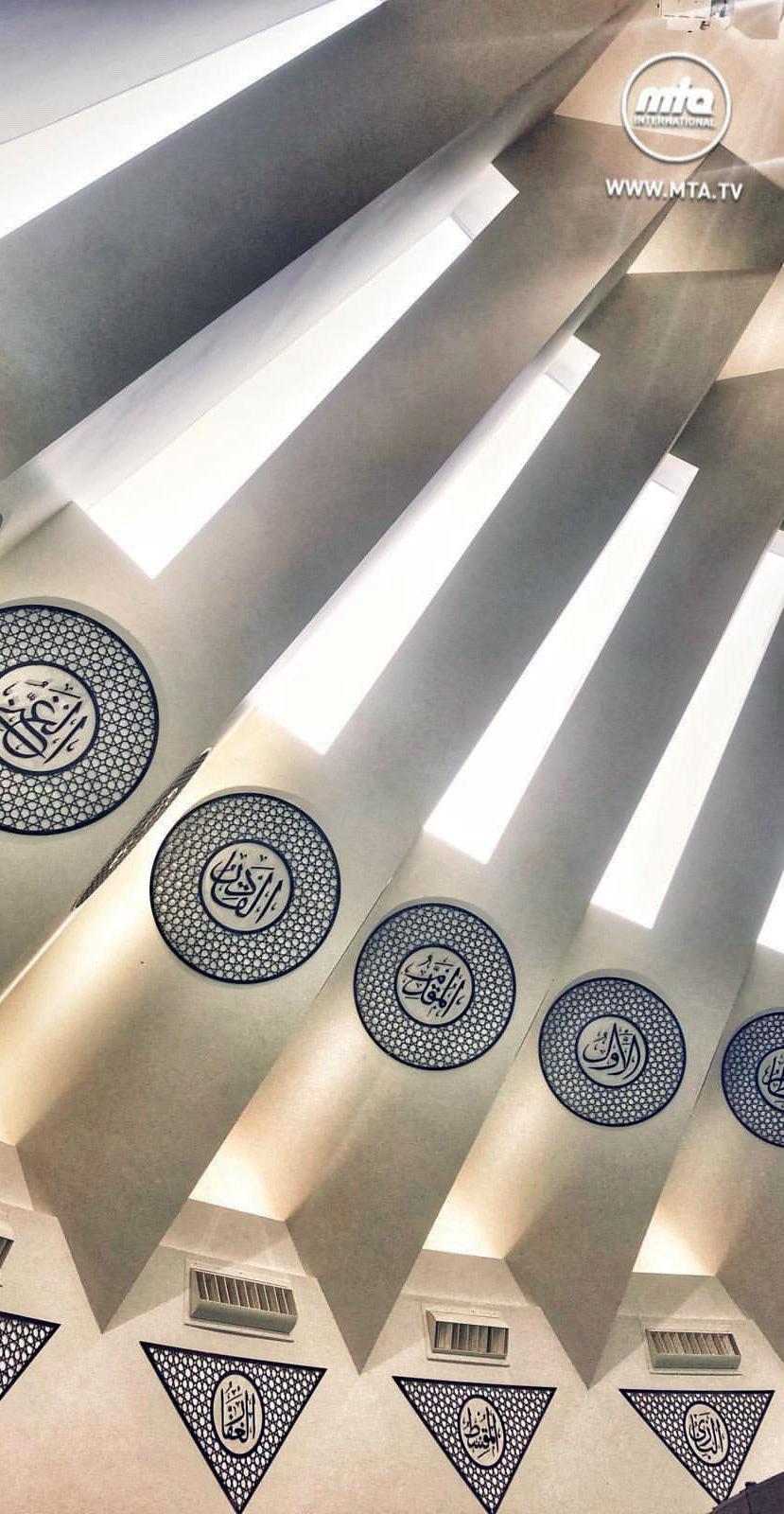
so they speak of numbers in the millions and billions. Bearing this in mind, he said, “We had 60 million, but we needed approximately 1.5 billion rupees for the mosque. Whilst advising the members, he [Amir Sahib] said, ‘You should start the construction of the mosque with whatever funds are available, however, we will witness the help of Allah the Almighty thereafter. There is no need to fear. Even if we need 1.5 billion Indonesian rupees, first start with the 60 million that you have.’” This amount isn’t even one-tenth [of the total required]. In fact, it is about three or four percent. He continues, “After giving us this advice, he took his wallet out of his pocket and gave contributions to the mosque. Upon this, the members of the Community began to actively make contributions and sacrifices, so much so that within two years, we had completed 80 percent of the mosque’s construction. Following this, the pandemic struck. The members’ income decreased and the mosque’s construction came to a halt.” He continues, “We went back to him and told him that we would like to complete the construction of the mosque, however, we need 150 million rupees to do so. We were confident that the Markaz [central headquarters] would help us in this effort, but Amir Sahib said, ‘Markaz will not help you. You are capable of collecting this amount without asking anyone for help.’
He then asked how many Ahmadis were contributing, and I told him that there were 160. Upon hearing this, he smiled and very calmly said, ‘Tell every single member to contribute about 10 million rupees each (which is about 100 to 150 sterling) and you will have completed your collection.’”
He continues, “In the beginning, we did not think we could achieve this so easily, but when we started to act upon his advice, the hearts of the members of the Community filled with love and passion to sacrifice their best wealth for the construction of the mosque. Despite this, [Amir Sahib] still contributed a large amount on his own behalf as well. Thus, within three years, the mosque was completed in February.”
Apart from the members of the Community, he had built relationships with others as well. Luqman Hakim Saifuddin Sahib, the former Minister of Religious Affairs, said, “I consider him as an individual of national importance, who would always put humanity first. Wherever he would go, he would always emphasise how we should respect humanity and inculcate mutual tolerance, and care for one another.” He continues, “In my view, it is our responsibility to uphold these principles, not just for Ahmadis, but for all the people of Indonesia. We should follow his example and strive to act upon the guidance he has given us. All the differences and conflicts that arise between us, lead to the spread of hatred and dishonour for humanity and should thus be removed.”
The ambassador of Tunisia in Indonesia, Zuhairi Sahib, writes, “It was from Amir Sahib that I learned how to love the Holy Prophetsa, the Ahl-e-Bait [family of the Holy Prophetsa], and the religious scholars, and then to act upon their excellent teachings. Ahmadis faced many cruelties and abuse in Indonesia.” Many cruelties took place in Indonesia and he (Amir Sahib) endured those trying times with great patience and managed the Ahmadis there in an excellent
manner. Nonetheless, he writes, “Despite the many cruelties, injustices and abuse faced by Ahmadis, Amir Sahib taught us that we should serve our faith, country and humanity with sincerity and devotion because it is the principle of Ahmadis all over the world that ‘Love for all, Hatred for none.’ I testify that Amir Sahib was a beloved of Allah the Almighty, a scholar, a simple man and possessed great morals.”
Mrs Sharifuddin, a leader of a national organisation, wrote, “The manner in which Amir Sahib spoke was very impactful. Even though he was soft-spoken and respectful, his love for the country was evident. It was as though the motto ‘Love for all, Hatred for none’ came alive through his words. We testify to the fact that he was a good man, and such a leader who was always faithful and spoke to everyone with strong sentiments of love.”
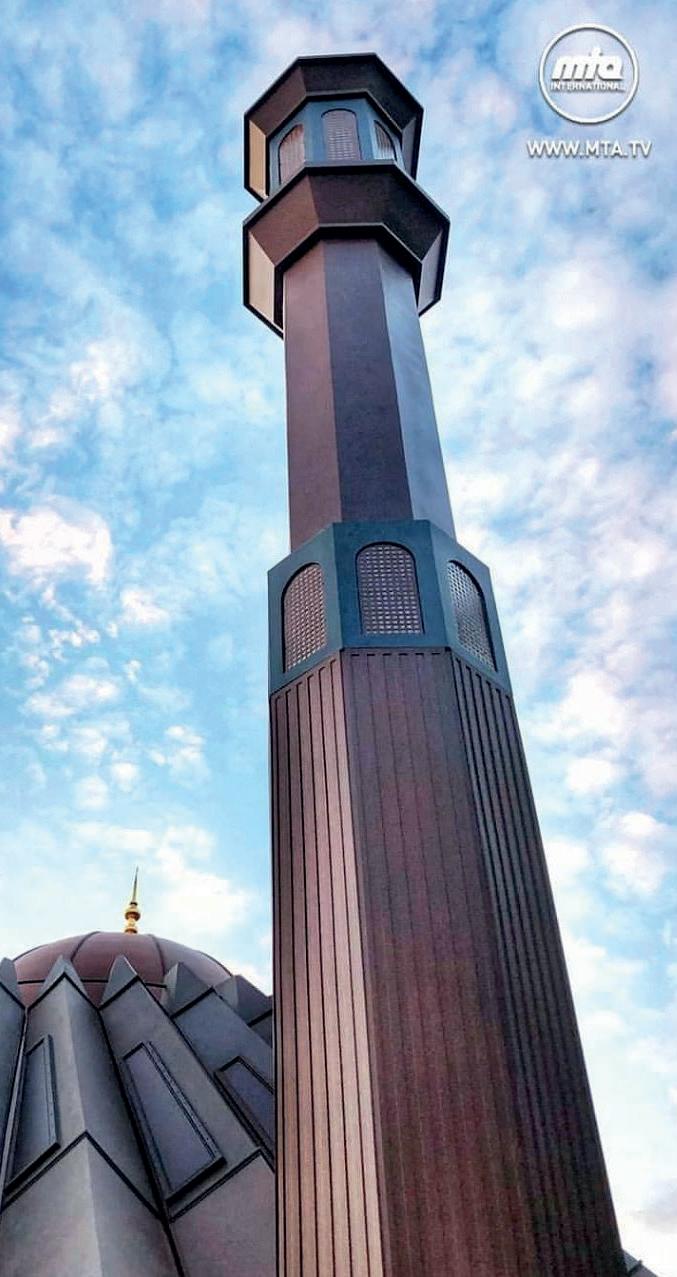
Mirajuddin Sahib writes, “As an Amir, the Ahmadiyya Community endured great opposition during his leadership. In Indonesia, there were many instances where Ahmadis were attacked. He endured all such occurrences with courage and composure. Government officials also greatly respected him. This is all owing to the excellent relations he had established.”
Ausum Sahib, the principal of Jamia Ahmadiyya Indonesia, writes, “Amir Sahib was an ever-devout servant of Khilafat. Being my neighbour, he would often accompany me on my way to the mosque for prayer. Whenever he would go on a tour, he would inform me about where he was going and advise me to also go on tours. He cared a great deal for Jamia Ahmadiyya. As a board member of Jamia Ahmadiyya, whilst taking the students’ interviews, he would always advise them, saying, ‘You are going to become missionaries. Thus, you should strive to become examples for the whole Community.’” He further states, “He would also give me guidance and indicate to me which students were struggling on an individual basis and try to assist them.” He always took a particular interest in the wellbeing of the students of Jamia.
Irshad Malhi Sahib, a missionary in America, says, “Basit Sahib was my class fellow and also my roommate, hence, I had the opportunity to get to know him very closely. He was very sharp and incredibly intelligent. He was good-natured, hospitable and cheerful. He was a very competent badminton player and would always win in Rabwah. He told me that in the days when he was coming from Indonesia to Rabwah, he received a wonderful offer from a company to play, which caused great concern to his father, Maulana Abdul Wahid Sahib, lest his son Abdul Basit change his mind about going to Jamia out of greed from this big offer.” [Irshad Sahib] states, “When he learnt of this concern from his father, he reassured his father and made an oath that he would never abandon his faith for the sake of any worldly gain. In this way, he rejected an offer of great economic benefit. I [Irshad Sahib] have witnessed all my life that he always gave precedence to his faith over the world and fulfilled this oath. He had boundless love for Khilafat and was completely devoted to it. From his time as a student, he was very close to Hazrat Khalifatul Masih IIIrh. In a light-hearted exchange with him, we used to say that he was the favourite of Hazrat Khalifatul Masih IIIrh. Similarly, in the era
of every Khilafat he displayed the utmost sincerity and loyalty.”
May Allah grant him mercy and forgiveness and elevate him in rank, and may Allah Almighty continue to grant the Community more missionaries and workers like him. I also saw him always display complete obedience and selflessness, as I have mentioned. May Allah continue to provide replacements for those who depart. The missionaries in Indonesia, in particular, and also those around the world must keep his example in mind. These are not tales of the past, rather, these people are from this very day and age, who have given precedence to their faith over the world and done justice to their dedication.
The next funeral is that of Zainab Ramazan Sahiba, wife of Yusuf Uthman Kambala Sahib, a missionary in Tanzania. She passed away a few days ago at the age of 70.
[Surely, to Allah we belong and to Him shall we return.]
Her husband, Yusuf Uthman Kambala Sahib, says, “My wife was very pious and sincere and would participate in all the work of the Community. She held great relationships with the neighbours. She looked after the poor and orphans. She showed great respect for missionaries. She was at the forefront of giving alms. Wherever we lived she would always be at the forefront of rendering her services to the Community. She would always display wonderful sincerity toward all Ahmadis. She was battling cancer for two to two and a half years, and was receiving treatment from the best doctors, but in the end, it was the decree of Allah the Almighty and she passed away in the past few days.” He writes,
“Almost one thousand people attended her funeral from Tabora and other areas, among whom were non-Ahmadi relatives too. She has three sons and three daughters, who are now all married. May Allah the Almighty grant her mercy and forgiveness.

The next funeral is of Haleema Begum Sahiba, wife of Sheikh Abdul Qadeer Sahib Darwesh of Qadian. She passed away last month.
[Surely, to Allah we belong and to Him shall we return.]
The deceased was regular in fasting and observing prayer. She was a patient, grateful, humble and well-mannered woman. She made efforts to make her children regular in offering prayers and reciting the Holy Quran. As long as her health permitted, she continued to teach the children in Qadian the Holy Quran. She had immense love for Khilafat and would be ready [to participate] in any scheme from the Khalifa of the time.
She spent the time as a darwesh with great patience and gratitude, and in spite of poverty, she would never leave a beggar empty-handed. As a result of the house of the deceased being close to Dar al-Khilafat, during the days of Jalsa, it would always be filled with guests. After welcoming guests with great courtesy, she would take care of them in an excellent manner. She was also a musia. Her son, Sheikh Nasir Waheed Sahib, is serving as the deputy administrator of the Noor Hospital in Qadian. She has three daughters who live abroad. May Allah the Almighty grant the deceased mercy and forgiveness.
The next funeral is of Maile Anisa Apisai Sahiba of Kiribati. The various accounts of her life are extraordinary, as is the incident regarding her acceptance of Ahmadiyyat. She was a very sincere and dedicated woman. She passed away a few days ago.


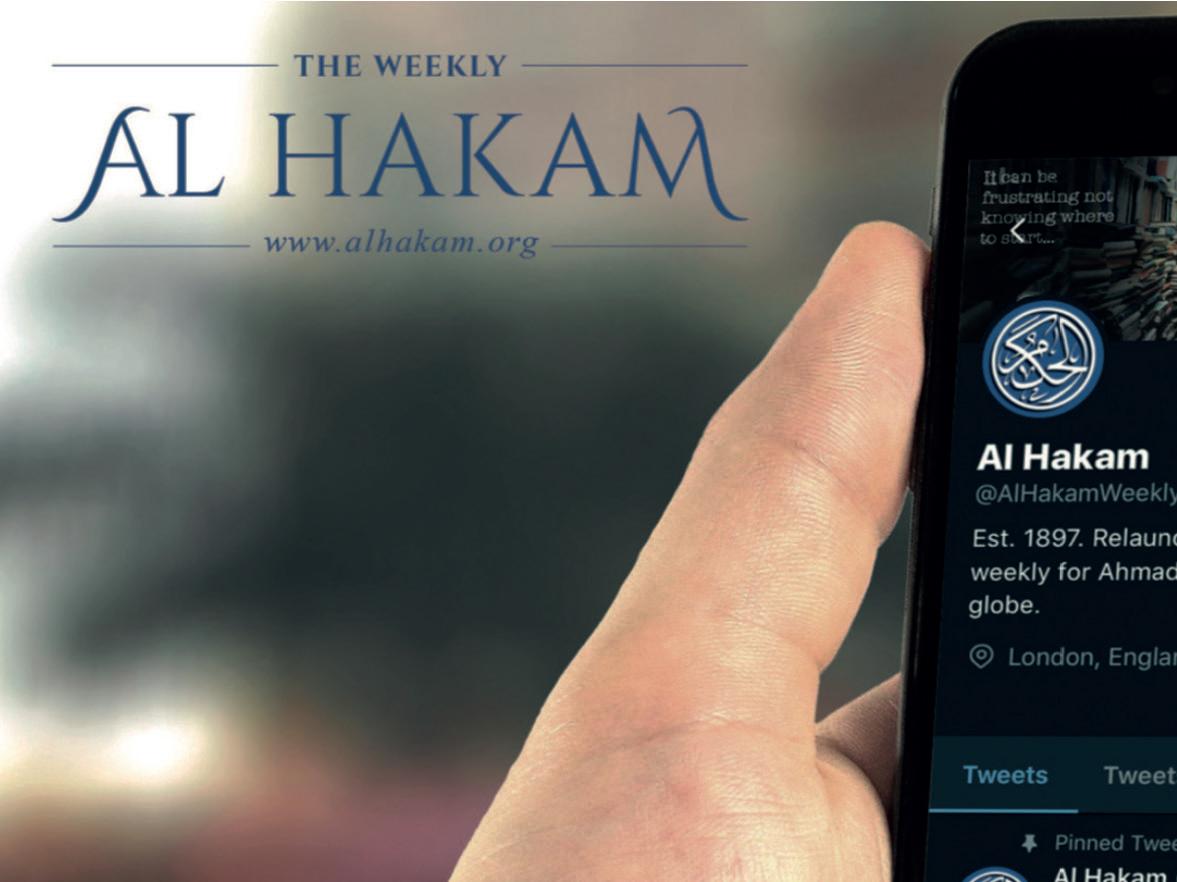
[Surely, to Allah we belong and to Him shall we return.]
She passed away at the age of 73. Khwajah Faiz Sahib, the missionary of Kiribati says, “Maile Anisa Apisai Sahiba was the first Ahmadi woman of Kiribati. She somehow found a copy of the Holy Quran in that corner of the world – such a place where it is very rare to find books from other places. When she found this copy of the Holy Quran she began to read it herself (it had the translation alongside it). After reading the Holy Quran, Maile Anisa Apisai Sahiba became so impressed by it that she believed in it in her heart and there and then began to wear the veil. When the first missionary of the Ahmadiyya Muslim Community Hafiz Jibrail Sayed Sahib reached Kiribati, he asked the people if there were any Muslims. They pointed towards Maile Anisa Apisai Sahiba saying that she is the only Muslim in the entire country. How wonderful is the grace of Allah that within a year of Maile Anisa Apisai Sahiba accepting Islam, upon the instructions of Hazrat Khalifatul Masih IVrh a missionary reached Kiribati.
This fearless young woman then began to preach to her family and friends, even before the missionary had arrived. For this reason, she became known in this country with a population of only 100,000 as the only woman to have accepted Islam. Therefore, even before the missionary, Hafiz Jibrail Sahib reached Kiribati, Allah the Almighty had granted him a Sultan-e-Naseer (helper) who was ready-made for the Ahmadiyya Muslim Community. She became renowned for being the only Muslim there who wore the veil and who preached to the people. When the first missionary, Hafiz Jibrail Sahib, came to Kiribati, Maile Anisa Apisai Sahiba pledged her allegiance and entered the fold of the Ahmadiyya Community. She made preparations for the residency and provisions for the missionary, and then immediately began her preaching. Many people joined the Community as a result of her preaching. She had immense love for the
Community. She showed great respect for missionaries. Despite the severe opposition from the people, her faith never wavered. She would wear the veil wherever she went and this Islamic attire of hers was also a means of propagation, even though people would at times scoff at her, curse her and even argue with her and torment her.
She never let the standard of her faith or veil falter and left behind an excellent example in which one wears the veil for the sake of God and does not worry what people would say. When she initially accepted Islam, she did not know how to pray, so, aside from the sajdah [prostration], she began to pray in her own way. When her father saw her praying in a new way, he became extremely angry and threatened to rip the Quran up. In reply, she said, “Then you ought to rip out those pages of the Gospels where it is mentioned that Jesus prostrated before God.” She displayed great courage and remained resolute in her faith. Then, by the grace of Allah, with the arrival of the missionary, she not only learned how to pray, but began teaching others as well.
People residing in that part of the world would look upon Islam with contempt. At that time, this courageous woman stood up and challenged everyone. She would present the teachings of Islam without any fear. She would not fear anyone except Allah the Almighty. Owing to this attribute of hers, many people, including politicians, were in awe of her. Owing to this awe and her strong faith, Allah the Almighty ensured that the politicians were influenced by this to such an extent that they even helped with the registration of the Community, which had previously been rejected due to opposition. Her awe was such that in her presence, there were those who knew her and were unable to say anything negative against Islam.
The doors of her house were always open for people to come and ask her any questions they wished. She would encourage everyone in her house to become regular in offering
prayers. For a long period of time, her house was used as the Salat centre. When her son, Ahmad Apisai, reached a mature age, she dedicated him to the services of the Community and sent him to Jamia Ahmadiyya Ghana. Many people tried to stop her and asked her why she was sending her son there, and said that they would kill her son there, but despite this, she took pride in sending her there. However, in line with the will of God, when Ahmad Apisai reached Africa, he fell ill due to malaria and subsequently passed away there. On that occasion, those same people came and said, “Look at what has happened, Islam is false and that is why your son died.” However, Maile Anisa Apisai Sahiba was not troubled by it in the slightest and did not pay any attention to them. Instead, she remained steadfast upon Islam and began to work for the sake of Islam with even more vigour and passion. Her faith did not waver in the slightest, nor did anything get in the way of her standard of purdah. The rest of her children also remained steadfast upon Islam and continued propagating the message.
She is survived by three daughters and one son. May Allah the Almighty grant them patience and enable them to serve Islam and Ahmadiyyat in the same way as their mother. May Allah the Almighty bless the seeds she sowed there and in accordance with her wishes, may this small island come under the fold of Islam Ahmadiyyat. May Allah the Almighty continue to grant the Ahmadiyya Community women like her, who are fearless, who set an example for others and have a passion for propagating the message of Islam and who remain steadfast upon their faith, and may He grant us such mothers who did justice to propagating the faith even more than missionaries. May Allah the Almighty shower His forgiveness and mercy upon her and elevate her status.
(Official transcript from Al Fazl International, 18 November 2022, pp. 5-10. Translated by The Review of Religions.)